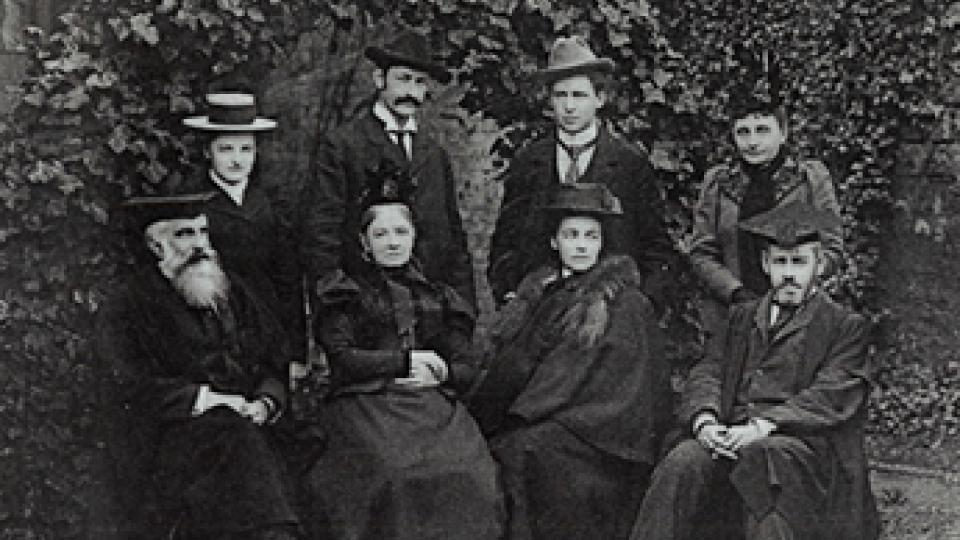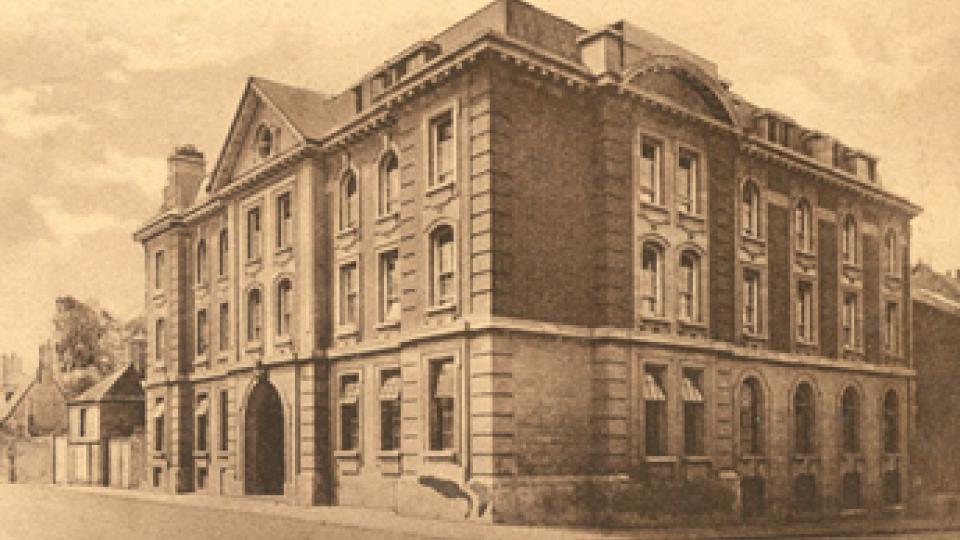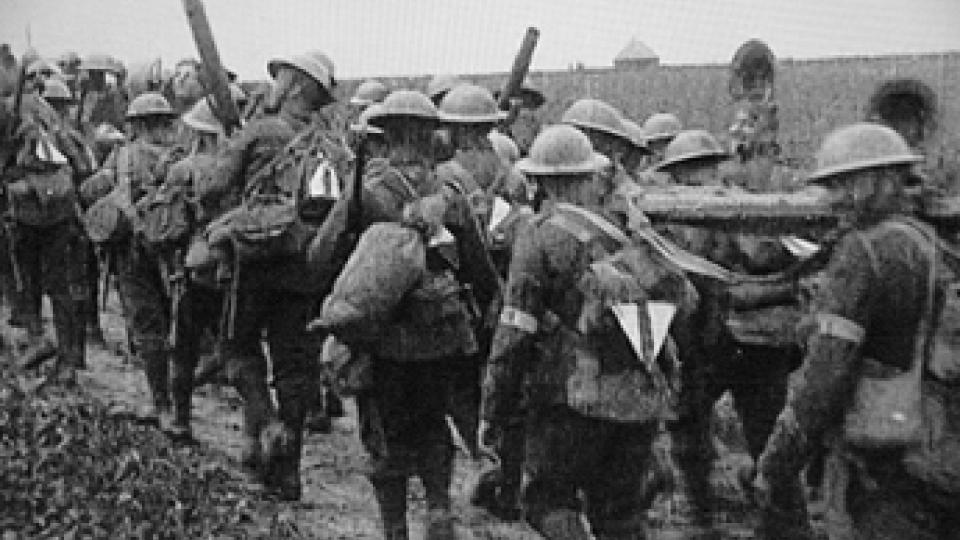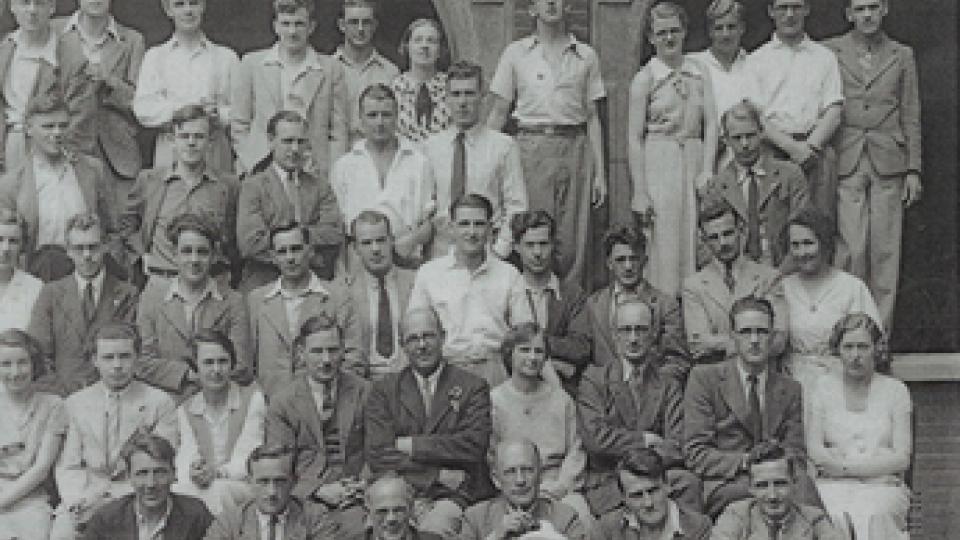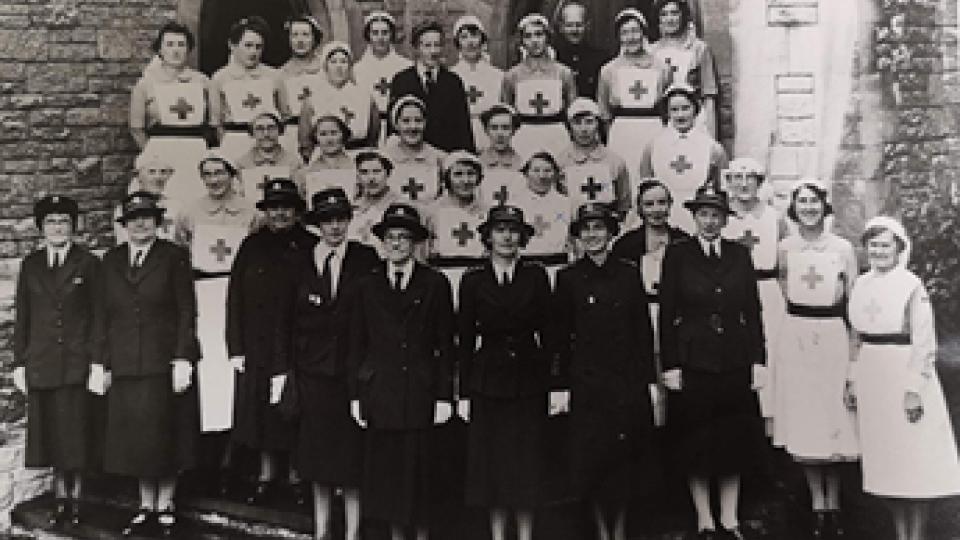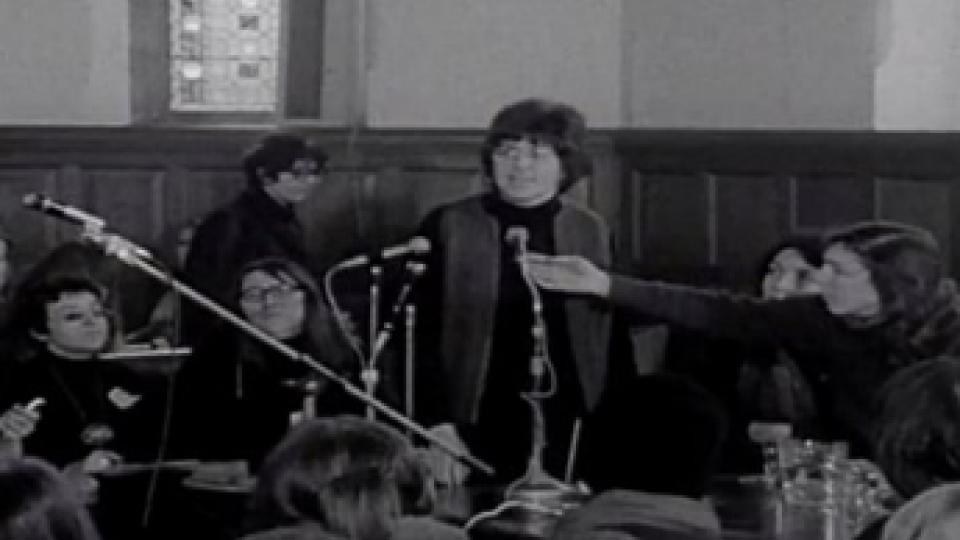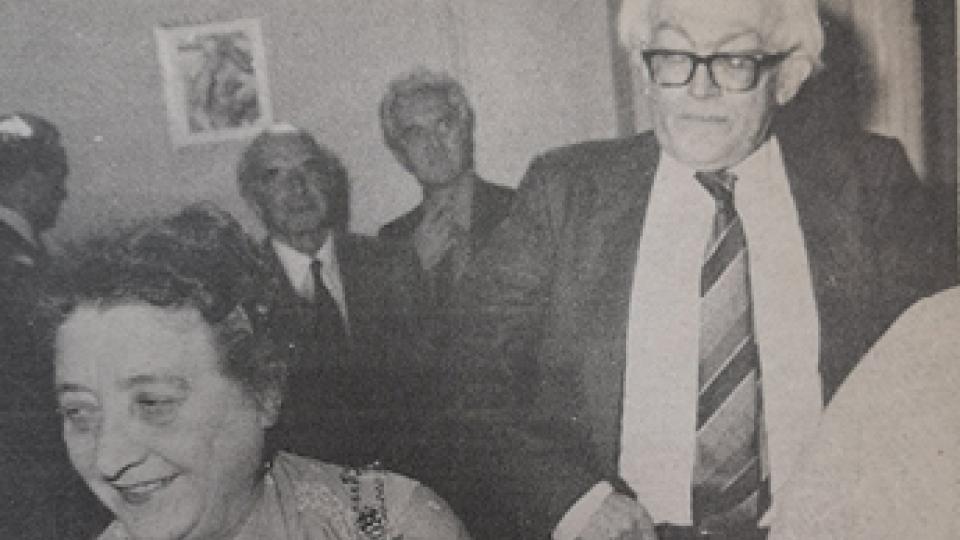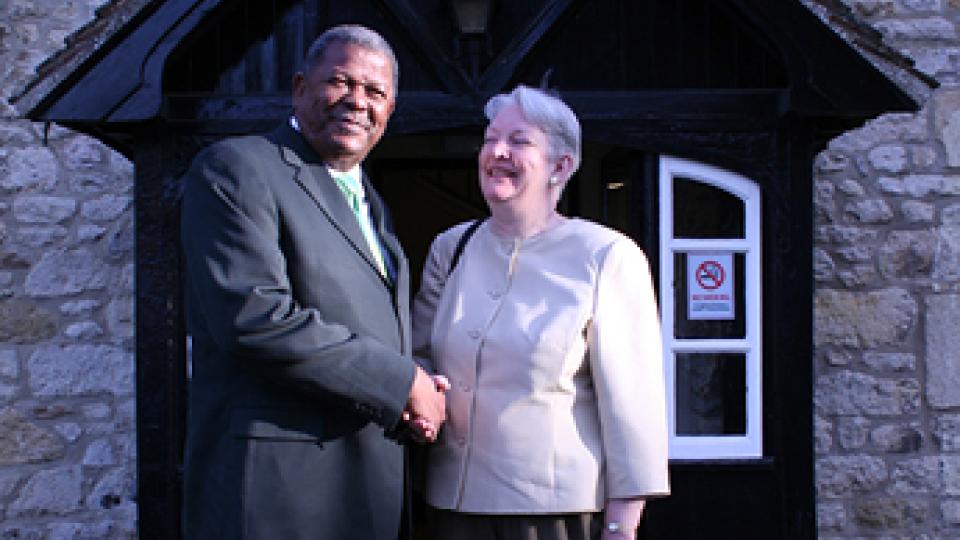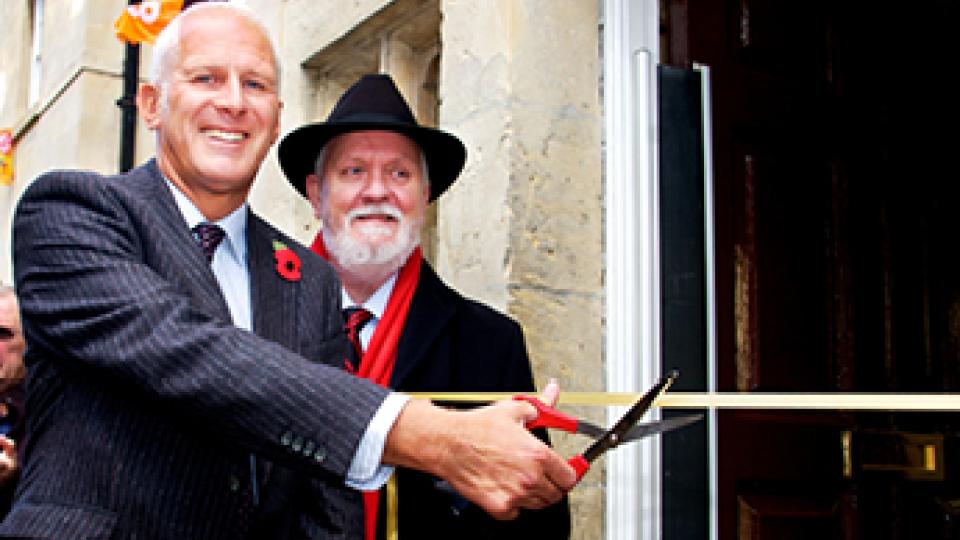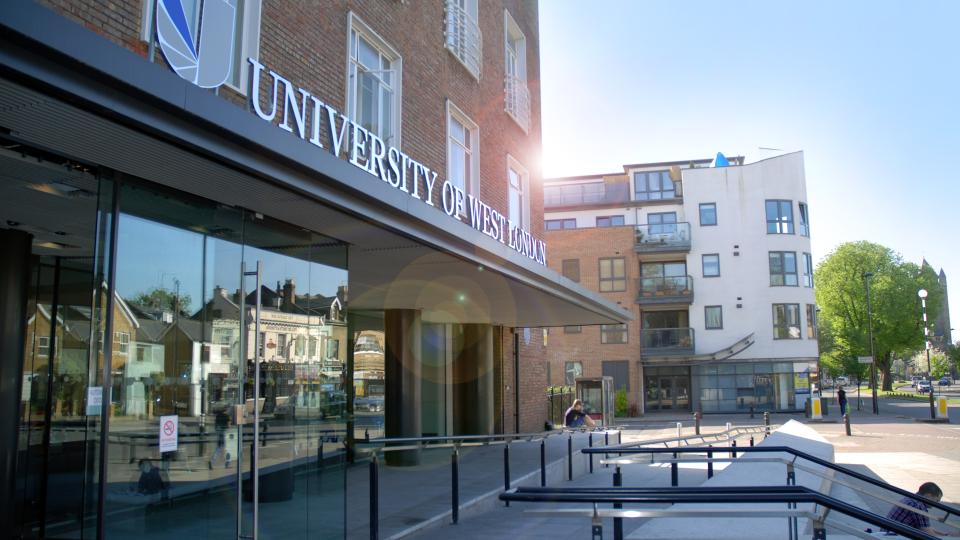
Our history
Our history
Ruskin College was founded in 1899 by two Americans who studied at Oxford University and decided that the same level of education should be available to everyone, not just the elite.
The College is named after John Ruskin, a radical pioneer of socialist thought. Ruskin has enjoyed some remarkable episodes in its history.
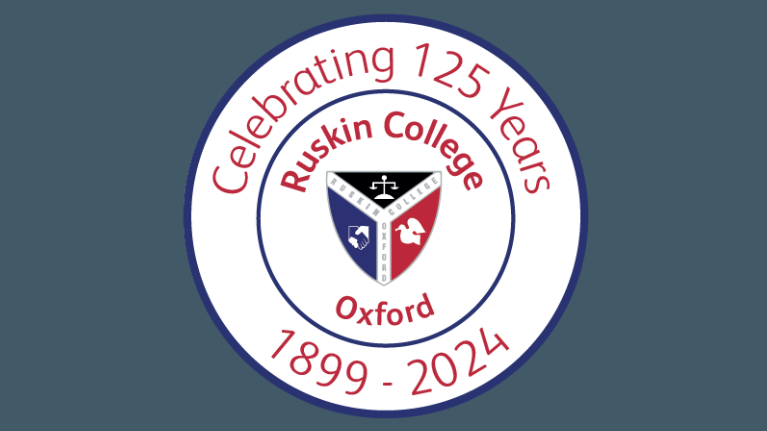
120 years of Ruskin College
1899 - Americans Charles Beard and Walter Vrooman (centre, back row) establish Ruskin Hall, a free university offering evening and correspondence courses for working class people. This is largely funded by Walter Vrooman's wife Amne (back row, right). Dennis Hird is appointed as the college's first principal.
1903 - Ruskin moves to 3 Walton Street from its original location at 14 St Giles, which was leased from Balliol College.
1909 - Dr Gilbert Slater is appointed as the new principal of Ruskin. A new Governing Council is created and student periodical ‘The Plebs’ is born.
1912 - Ruskin moves to new buildings in Walton Street, central Oxford, built to replace the cottages that formerly housed the college.
1914 - Ruskin closes at the outbreak of the Great War. The site is offered to the Oxford Belgian Relief Committee and houses Belgian refugees.
1916 - Henry Sanderson Furniss is appointed to the position of principal. The college building becomes nurses’ housing, supporting the war effort.
1918 - Summer Schools for war veterans are held at the behest of the Workers’ Union.
1919 - Ruskin admits first female students. Ferdie Smith becomes General Secretary, a post he will hold for 37 years.
1927 - Oxford University sets up its Adult Education Centre, which will provide places for Ruskin students to train to be Adult Education Tutors.
1931 - Mahatma Gandhi visits Ruskin Hall during a visit to the UK.
1938 - A census of alumni shows that Ruskin has already produced sixteen Labour MPs, seven general and assistant secretaries of unions, two district officers, four organisers and four research officers.
1939 - During the Second World War Ruskin is used as a maternity hospital.
1941 - Ruskin courses become available to members of the armed forces under the War Office scheme.
1944 - Lionel Elvin becomes the fifth principal Of Ruskin.
1949 - 50-year-old Ruskin celebrates its Jubilee year and commences a funding appeal to raise money for new college buildings at the Old Headington campus.
1950 - Labour MP and educationist HD ‘Billy’ Hughes becomes Ruskin’s new principal.
1959 - Bowerman House is constructed on Ruskin’s Headington site.
1965 - Ruskin purchases Stoke House adjacent to the Old Headington site. Construction of Bowen House is completed.
1970 - Ruskin College hosts the first ever National Women’s Liberation Conference. Student publication the ‘New Epoch’ is printed for the last time and includes a private interview with Prime Minister Harold Wilson.
1979 - John Hughes is appointed principal of Ruskin.
1982 - Labour Party Leader Michael Foot oversees the formal opening of the Kitson Building and a new library.
1985 - Ruskin students march in support of the striking miners and against apartheid in South Africa.
1987 - Construction on residential accommodation block Beatrice Webb House commences.
1988 - Leader of the Labour Party Rt Hon Neil Kinnock officially opens Beatrice Webb House.
1989 - Dr Stephen Yeo becomes the eighth principal of Ruskin.
1998 - James Durcan is appointed principal. Ruskin’s Women’s Studies course is the fastest growing in the college.
2004 - Audrey Mullender becomes the first female principal of Ruskin College.
2010 - Ruskin’s Walton Street site is sold to Exeter College for £7 million.
2011 - Bowerman House is demolished and work gets underway on the redevelopment of The Rookery.
2012 - Ruskin completes large-scale development work on the Headington campus, with a new building attached to The Rookery, including teaching rooms, offices, a library and café. The new headquarters is opened by Gordon Marsden MP.
2014 - Dr Chris Wilkes takes the reins as principal of Ruskin.
2016 - Following the sad passing of Dr Chris Wilkes, Vice-Principal Paul Di Felice is appointed principal.
2019 - Ruskin celebrates its 120th anniversary, welcoming General Secretary of the TUC, Frances O’Grady, as part of its celebrations.
2021 - Ruskin College joins the University of West London group.
2024 - Ruskin College celebrates its 125th anniversary.
Ruskin College Archive
Stories
Ruskin has been graced by some extraordinary people, places and events since our doors opened in the 19th century. Here are just a few:
-
Len Garrison
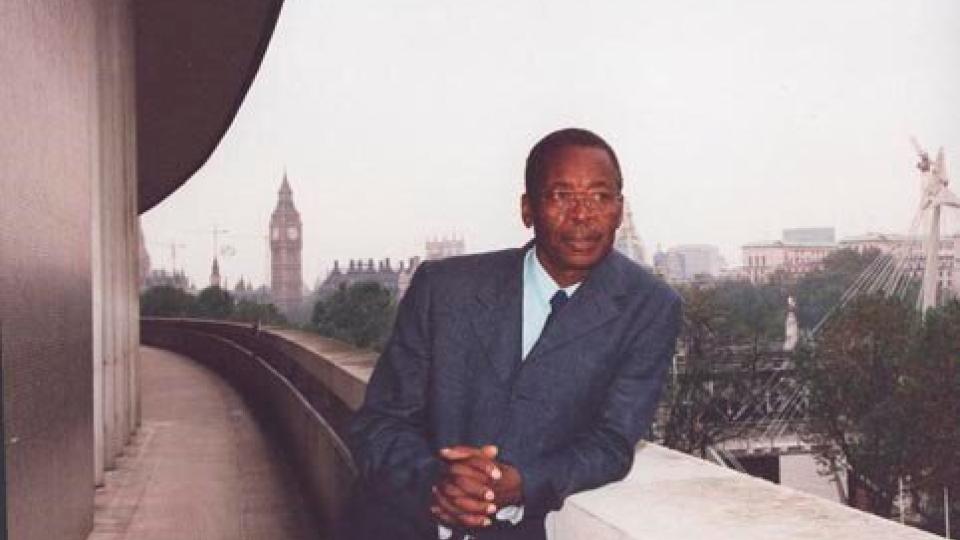
Lenford ‘Len’ Alphonso Garrison, born in St Thomas, Jamaica in 1943 was an educationalist, community activist and historian whose life’s work was to catalogue the development of the Black British identity and its history, and promote the works of young black writers. He was the creator of ACER (Afro-Caribbean Education Resource) and co-founded the Black Cultural Archives.
Len’s family migrated to Britain in the early fifties and settled in West London in 1954. He studied Photography at King’s College London and went on to become a specialist medical photographer at Guy’s Hospital and a freelancer for the West Indian Gazette.
Len joined Ruskin in 1971, gaining a Diploma in Development Studies. He would later gain a BA at the University of Sussex in African History and Caribbean history, and an MA in Local History at Leicester University.
Len was invited to represent Britain at FESTAC – the Festival of Arts and Culture – in Nigeria in 1977, where his presentation was based on his dissertation on the Rastafarian movement that he had written while at Ruskin College.
Len believed that the British education system was failing black children as it denied the reality or existence of black history or culture. He argued that what was required was an educational resource that was multi-cultural, recognising and acknowledging black history. To this end, ACER was set up.
ACER would become a major archive of black history from which educational material could be developed for school children of all ages and abilities. He campaigned for two years for funding and resources until 1977, when the ACER project was launched with Len at the head. ACER’s black history educational packs went on to be used all over the country.
ACER’s most successful project was the Young Penmanship awards for creative writing about the reality and experiences of young black people in Britain. The award helped launch the careers of many black professionals, including the playwright Michael McMillan, novelist and barrister Nicola Williams, the music critic Clive Davis and Dr Michael Beckles.
In 1988 ACER was forced to close due to lack of funding. Its legacy can be seen today in black history being part of the mainstream British educational curriculum and its model has been adopted internationally.
Len also co-founded the Black Cultural Archives (BCA) in 1981 and became a trustee. The BCA would be a major factor in the shift towards a fully multicultural British society, which was his vision. In 2010, the BCA won funding of £5 million and moved to Brixton to become the UK’s first national black heritage centre.
Len died in 2003.
-
Clement Attlee
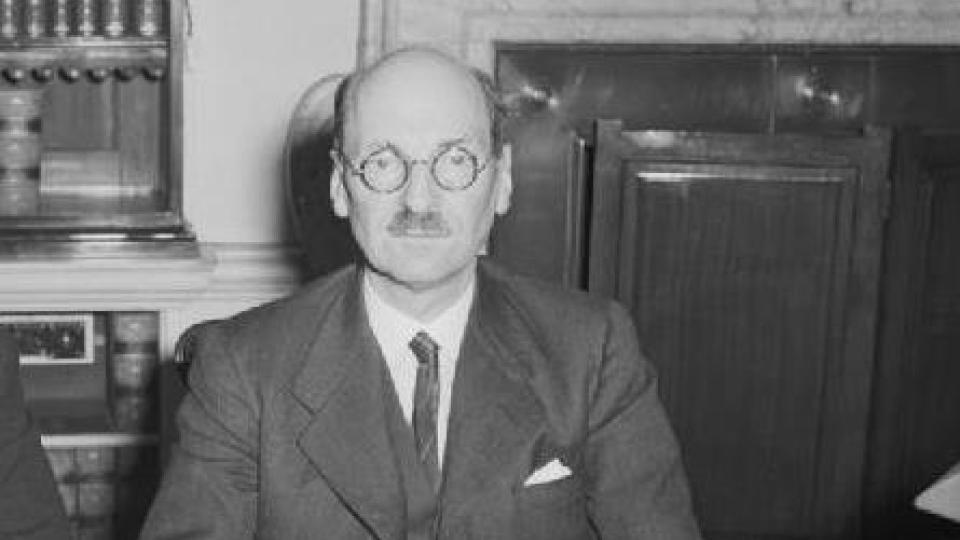
Clement Richard Attlee, born in 1883, was a British statesman and Labour Party politician, educated at Haileybury College in Hertforshire and University College, Oxford. In 1911, at the age of 28, a youthful Clement joined the Ruskin teaching staff, before going on to join the LSE in 1913.
First elected to the House of Commons in 1922 as MP for Limehouse, he rose quickly to become a Junior Minister in 1924 and then joined the Cabinet in 1929. He became Deputy Leader of the Labour Party in 1931 and Leader from 1935 to 1955. In 1940 Clement took Labour into the wartime coalition government and served under Winston Churchill. He went on to lead the Labour Party to a landslide victory at the 1945 general election and served as Prime Minister until 1951. He remains the longest-ever serving Leader of the Labour Party. He died in 1967, aged 84.
-
Billy Hughes
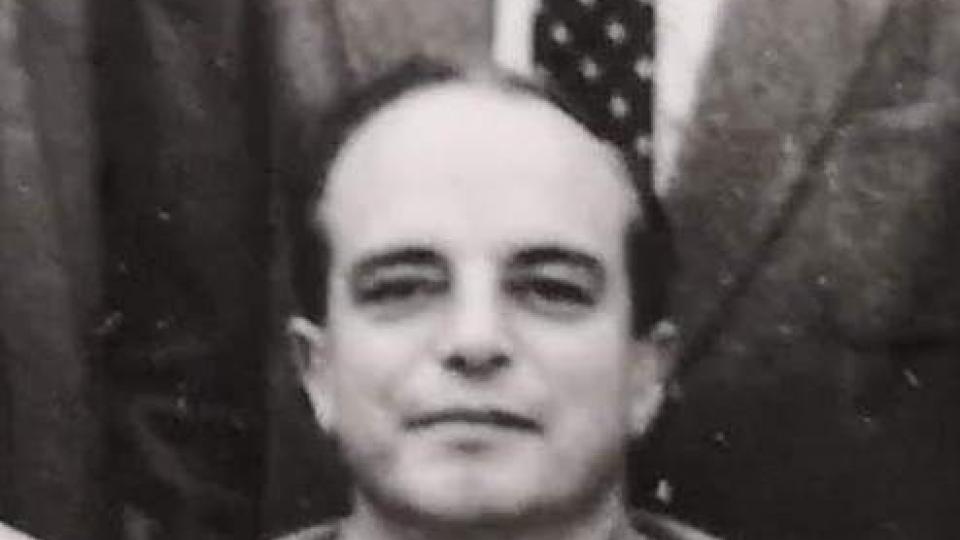
Billy, born Herbert Delauney Hughes in Swindon in 1914, was a British educationalist and Labour Party politician. His father Arthur was a secondary school teacher and his mother was a former head teacher who educated Billy at home until he was eleven.
Billy won a scholarship to Balliol College in Oxford and graduated in 1935 with a degree in Modern History. He trained as a schoolteacher at Manchester University, but left to work in London for the New Fabian Research Bureau. Billy married (Winifred) Beryl Parker in 1937. During World War II he served with the Royal Artillery. He was Private Secretary to the Secretary of State for Education until 1948.
In 1950 Billy was appointed Principal of Ruskin, where he presided over an expansion of college facilities and growing student numbers. He managed to secure an increase in funding and successfully campaigned for the government to make it mandatory for the Local Education Authorities to provide grants to the college’s students. He would remain at the helm at Ruskin for 31 years.
-
Gilbert Slater
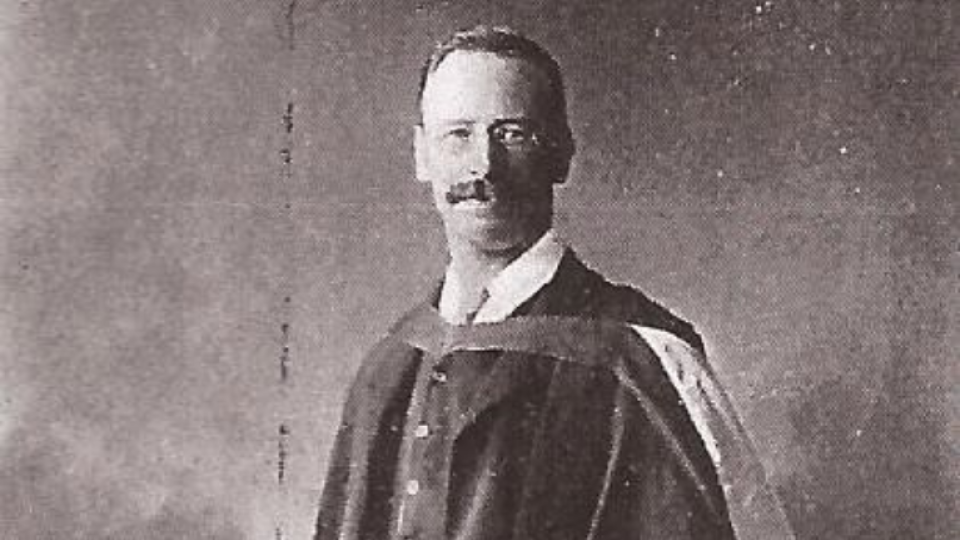
Gilbert Slater, born in Plymouth in 1864, was an English economist and social reformer of the early 20th Century. He studied Economics and worked as a Professor, completing his PhD at the London School of Economics in 1905.
He was a member of the Labour Party and was Chairman, Vice-Chairman, or Secretary of many local committees connected with unemployment. In 1909 he was appointed the principal of Ruskin, and later went on to serve as Professor of Indian Economics at the University of Madras, initiating key rural developments in the country.
Gilbert joined Ruskin at a difficult time in its early history. He was appointed to replace Dennis Hird and quickly made structural changes that sought to ‘democratise’ the College. Under his leadership the College settled down and flourished: in 1910 the Oxford University Diploma in Economics and Political Science was opened up to Ruskin candidates; he changed the constitution to ensure that the majority of the Governing Body’s members were representative of working class organisations; the Ruskin Fellowship was formed in 1911; the new buildings in Walton Street were opened in 1913.
His tenure collided with the outbreak of the First World War, when the college had to shut, compelling him to seek new employment.
-
Hastings Lees-Smith
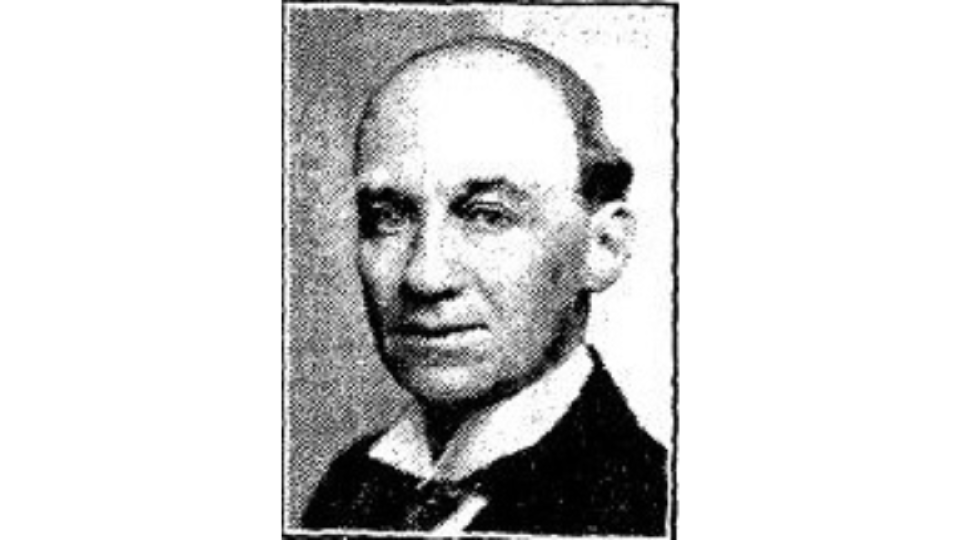
Hastings Bertrand Lees-Smith was born in 1878 into an army family based in British India was a British Liberal turned Labour politician who was briefly in the Cabinet as President of the Board of Education in 1931 and was chairman of the Parliamentary Labour Party from 1940.
Hastings studied at the Royal Military Academy and The Queen’s College, Oxford and went on to lecture in Public Administration at LSE. He became the Chairman of the Executive Committee at Ruskin from 1907 – 1909, being Chief Adviser on Studies, and served as Vice-Principal for a time, teaching Economics. It is said that he disagreed with the politics of Dennis Hird and that he upset socialist students because of his Liberal Party views and free-market support.
-
Jeremy Corbyn
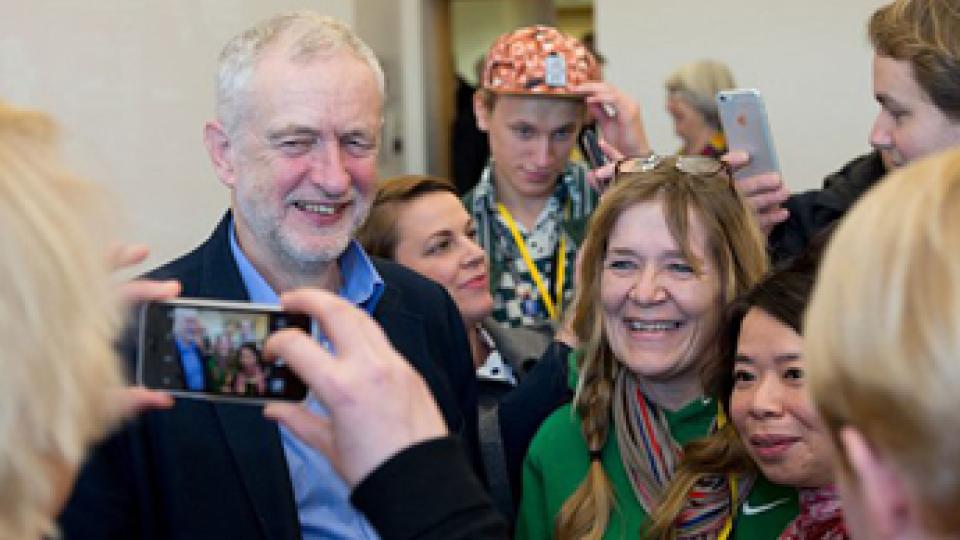
Jeremy Bernard Corbyn is a British politician serving as Leader of the Labour Party and Leader of the Opposition from 2015 - 2020. Born in 1949 in Chippenham, he was first elected MP for Islington North in 1983. Identifying as a democratic socialist, he advocates reversing austerity cuts to public services and welfare funding. Jeremy has been an anti-war and anti-nuclear campaigner since his youth.
He started his career as a representative for various Trade Unions and his political career began when he was elected to Haringey Council in 1974. He later became Secretary of Hornsey Constituency Labour Party, before he was elected MP for Islington North. As a backbench MP he was known for his activism: he would frequently vote against the Labour whip, including when the party was in government under Tony Blair and Gordon Brown.
Jeremy visited Ruskin in 2016 to give the key note speech for The Future of Working Class Education Conference. During the speech he reaffirmed his and Labour’s commitment to education as a whole and underscored the party’s commitment to understanding education as a right for everybody.
-
John Hughes
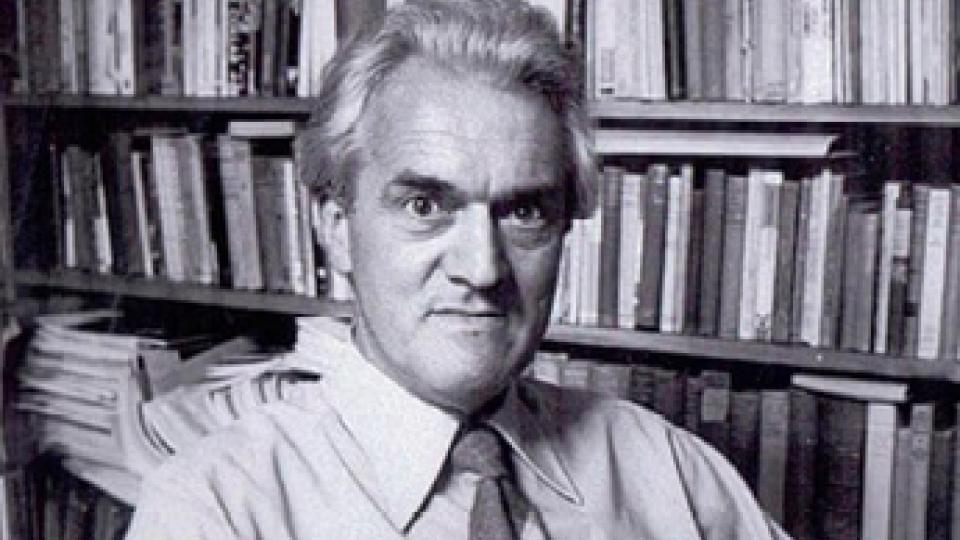
John Hughes was the Principal of Ruskin from 1979 to his retirement in 1989. He joined the College in 1958, where he would stay for over 30 years.
Born in 1927, John won a scholarship to Westminster City School before being evacuated to Kent during the war. After the war he won another scholarship to study Greats at Lincoln College, Oxford, but quickly swapped to Philosophy, Politics and Economics, graduating in 1948. In 1949 he joined the international youth brigade rebuilding the Samac-Sarajevo railway line in Yugoslavia and met his wife Vi, who he married later that year. Vi became a Tutor and then Senior Tutor in English Literature at Ruskin.
Throughout his life, John put his considerable range of skills at the service of the labour movement and was a passionate believer in a fairer economic system, seeking better wages and conditions for working people. In the 1960’s he helped the TUC set up its annual Economic Review, presenting an alternative perspective on economic strategy. He was a prolific writer for the Fabian Society and for Spokesman Books on workers’ control.
John first discovered Ruskin as a student himself, before becoming a Tutor in Economics, Politics and Industrial Relations. He was appointed Vice-Principal in 1970 and Principal in 1979, following the retirement of Billy Hughes.
As Principal, he founded Ruskin's Trade Union Research Unit, introduced project work, set up a Labour Studies course, and devised advanced courses for senior trade union officials. He retired in 1989.
-
Raph Samuel
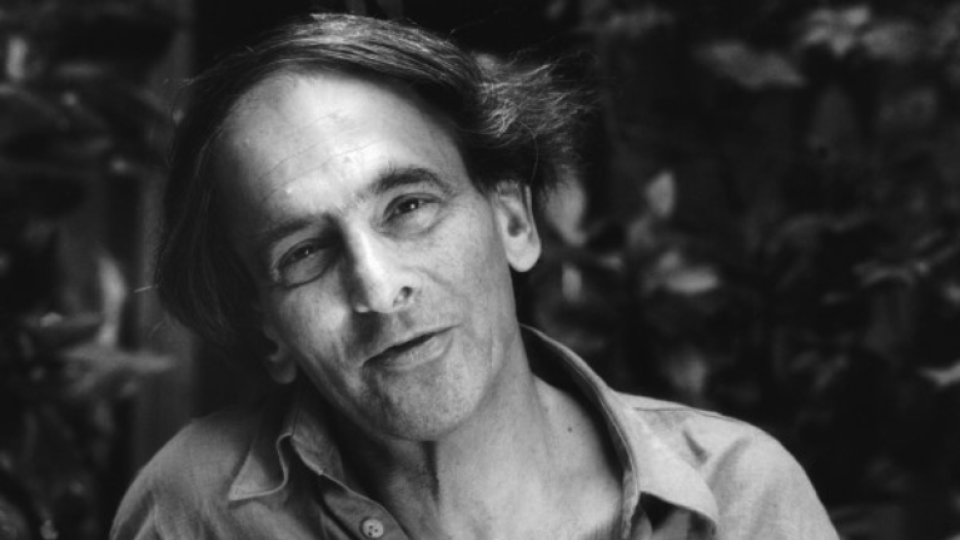
Raphael ‘Raph’ Elkan Samuel, born in 1934, was a pioneering social historian, radical thinker, writer and teacher who taught at Ruskin from 1962, founding the History Workshop movement.
Born into a Jewish socialist family in London, his father was a solicitor and his mother was a composer and partner in Jewish publishers Shapiro, Valentine & Co. Raph joined the Communist Party of Great Britain as a teenager and left after the Soviet Union’s invasion of Hungary in 1956. He was awarded a scholarship to Balliol College, Oxford where he became a member of the Communist Party Historians Group. Raph co-founded the journal Past and Present in 1952 and also co-founded the Partisan Coffee House in Soho in 1956 to create a meeting place for the British New Left. He married Alison Light, a writer and critic, in 1987.
Raph taught at Ruskin from 1962, and was a major influence, founding the History Workshop movement, which powerfully influenced the development of the approach to historical research and writing which is commonly called ‘history from below’. When he joined Ruskin he was appointed Tutor in Sociology and rather than subjecting his students to textbooks and vocational learning he felt there was an importance for them to tell their history, allowing them to become historians of their own past.
Raph pioneered the study of working-class history and brought to the writing and popularisation of history a huge amount of energy and creativity. He was an inspired teacher and the author of books and essays which expanded beyond recognition the intellectual and imaginative ranges both of English history and of the writing of history itself. Raph launched a series of national workshops on topics which were then unheard of – but are now mainstream – such as women’s history, the history of childhood, empire and patriotism, the changing definition of nations and the cultural diversity of Britain. He preached and practised a new vision of a popular history: a democratic history which put the everyday lives of ordinary people at its heart. He was described by Stuart Hall as “one of the most outstanding original intellectuals of his generation”.
Raph died in 1996.
-
Tony Blair

Anthony ‘Tony’ Charles Lynton Blair, born in Edinburgh 1953, is a British politician who served as Prime Minister of the UK from 1997-2007 and Leader of the Labour Party from 1994-2007. He remains the last British Labour Party leader to have won a general election, winning a landslide victory in 1997 and, aged 43, was the youngest Prime Minister since 1812. The Labour Party went on to win two more general elections under his leadership.
Tony visited Ruskin in 1996 and gave his ‘The Agenda for a Generation’ speech, marking the anniversary of Jim Callahan’s ‘The Great Debate’ speech 20 years earlier. He emphasised that education would be a priority for him in government, focusing on standards, especially the basics of literacy and numeracy in all schools, improving educational experience and raising the standards of achievement.
He said “Ruskin College reminds us that education is about opening minds not just to knowledge, but to insight, beauty, and inspiration… Ruskin provides top-class education for people with top-class minds, but no qualifications… teaching them about themselves, and helping them change direction”
-
Beatrice Webb
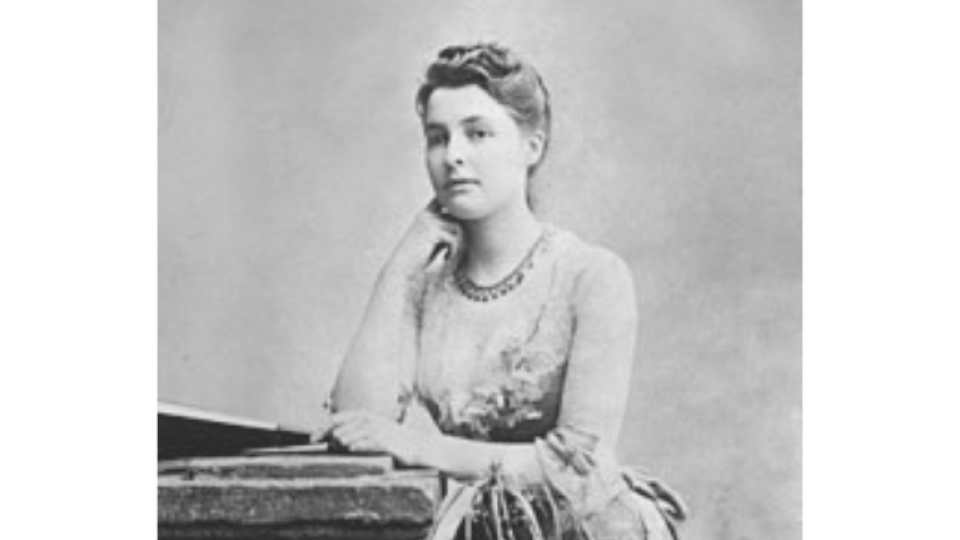
Born in Gloucestershire in 1858, Martha Beatrice Webb (nee Potter) was a prominent pioneer of social science in Britain and a leading social reformer.
She married Sidney Webb in 1892 and together they shared a lifelong partnership filled with common professional and political causes, including playing crucial roles in the formation of The Fabian Society and co-founding the London School of Economics and the New Statesman periodical.
Beatrice made a number of important contributions to the political and economic theory of the co-operative movement. She coined the term ‘collective bargaining’, the process by which employers and employees negotiate, and the Welfare State setup by the post-war Labour government was testament to her lifelong research and campaigning.
In 1929, Sidney and Martha became Baron and Baroness Passfield, as members of the House of Lords. In 1932, she became the first women to be elected a Fellow of the British Academy (FBA).
Beatrice Webb house, a residential block constructed in 1988 was named in honour of her pioneering work.
-
Judith Cummins

Judith Cummins is a Labour Party politician. She has been Shadow Minister for International Trade since 2018 and MP for Bradford South since 2015. Judith was elected as a local councillor for Bradford in 2004, representing the Royds ward, and would go on to be a Leeds City Councillor from 2012 until 2016.
Judith attended Ruskin as a mature student on a Trade Union Scholarship through Ruskin’s partnership with GMB. She became Ruskin’s first female MP upon her election. Judith was on placement in parliament from Ruskin when the first Tony Blair government came to power in 1997.
-
Lucy Lameck
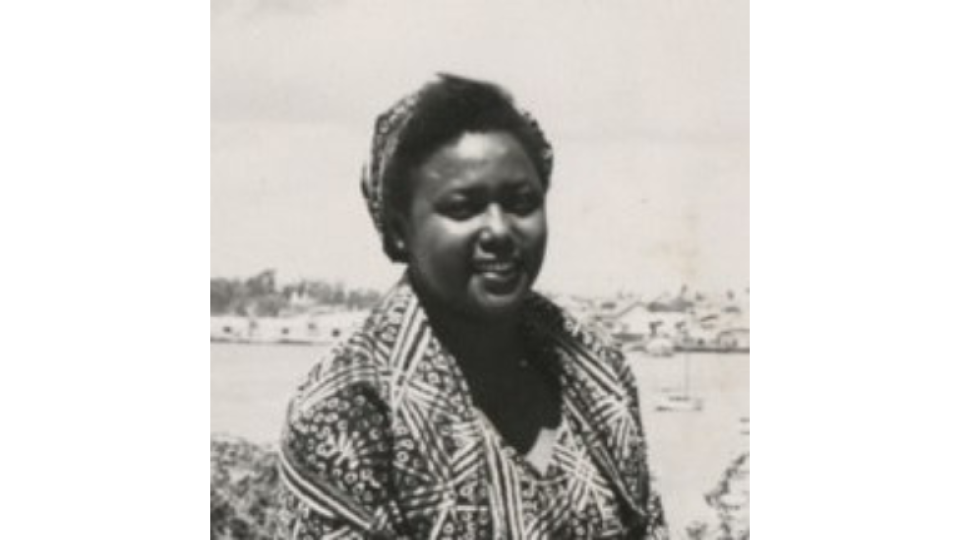
Lucy Selina Lameck Somi was born in 1934 near to the Kilimanjaro ward in the British territory of Tanganyika (modern day Tanzania). She was a Tanzanian politician and the first woman to hold a ministerial post in the government.
Lucy came from a family of politically-active farmers. After training as a nurse in 1950, she began working as a secretary. Between 1955 and 1957, she worked for the Kilimanjaro Native Cooperative Union, and began to become involved in politics. Working with the Tanganyika African National Union (TANU), Lucy became the head of the women’s section. Her political activities resulted in a scholarship from the Trades Union Congress to study Politics at Ruskin College.
While in the UK, she spoke at East Africa House in London and also completed a semester at Western Michigan University in the United States. Sponsored by the Delta Sigma Theta sorority, she conducted a tour of African-American communities across the USA in 1960, to investigate the economic differences between the United States and Tanganyika.
She later returned to Tanganyika, where she was appointed to a seat in the National Assembly. Between 1962 and 1965, she was Parliamentary Secretary of Cooperatives and Community Development, the first ministerial post held by a woman in Tanganyika or Tanzania.
When the newly-formed Tanzania held elections in 1965, she ran and won a seat in the National Assembly, holding dual posts of Deputy Minister for Cooperatives and Community Development between 1965 and 1970, and Deputy Minister of Health between 1967 and 1972. She held her seat in the 1970 elections, but lost it in 1975.
Lucy won the seat back again following the general election in 1980, and continued to hold it until her death. She introduced significant legislation, including improving the conditions for women within the country.
When Lucy died in March 1993, her funeral with full honours was attended by the President of Zanzibar, Salmin Amour, and the Prime Minister of Tanzania, John Malecela. She has since been considered a role model for women, in particular female politicians, within Tanzania.
-
Mary Payne Giles
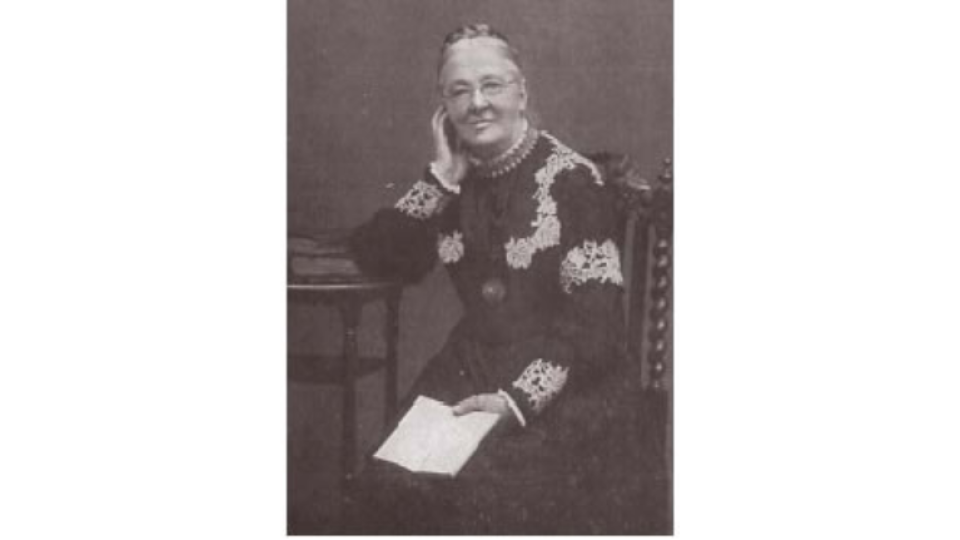
Born in 1837, Mary became the Secretary of the Correspondence Department at Ruskin when it first opened its doors in 1899. Already in her sixties, she dealt with 9,500 students as Secretary during her period of office, both in in England and overseas. At one point she was dealing with 1000 new students every year, from all types of occupations. A favourite phrase of hers was “college first” and she believed that, given time, the college’s correspondence courses would cover the entire world.
Bertram Wilson, Ruskin’s General Secretary, would write that “to the students she was a guide and helper” and Henry Sanderson Furniss, the third Principal of Ruskin paid tribute to her after her death in 1915, saying that “the College will never be the same again, but we must remember that without her it would never have been what it is.”
She was one of the people who laid a foundation stone for the new buildings at Walton Street (along with Sidney Buxton, Anne Vrooman and C.W Bowerman) in 1912.
Mary died in 1915.
-
Sally Alexander
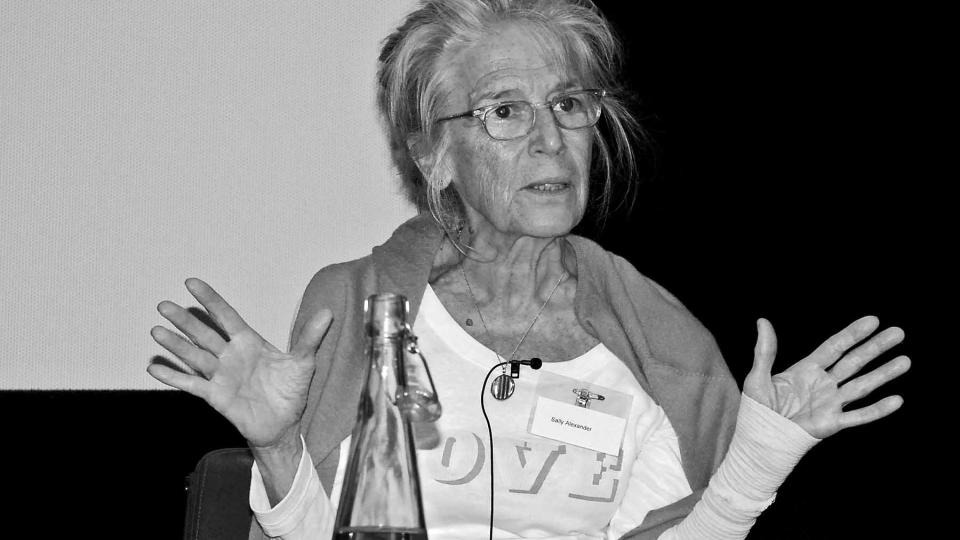
Sally Alexander was born in 1943 and worked as an actress from the age of 17, going on to have a daughter Abigail with actor John Thaw, with whom she split at the age of 25. She was heavily involved in the Women’s Liberation Movement and the Night Cleaners Campaign. Sally was a founding editor of the History Workshop Journal, established in 1976. She is currently Emeritus Professor of Modern History at Goldsmiths University of London.
Sally completed a History Diploma at Ruskin, before completing a degree at UCL. In the late 1960’s a group of students including Sally founded the History Workshop Movement at Ruskin. She also helped organise the first national Women’s Liberation Movement conference at Ruskin in 1970.
-
Vi Hughes
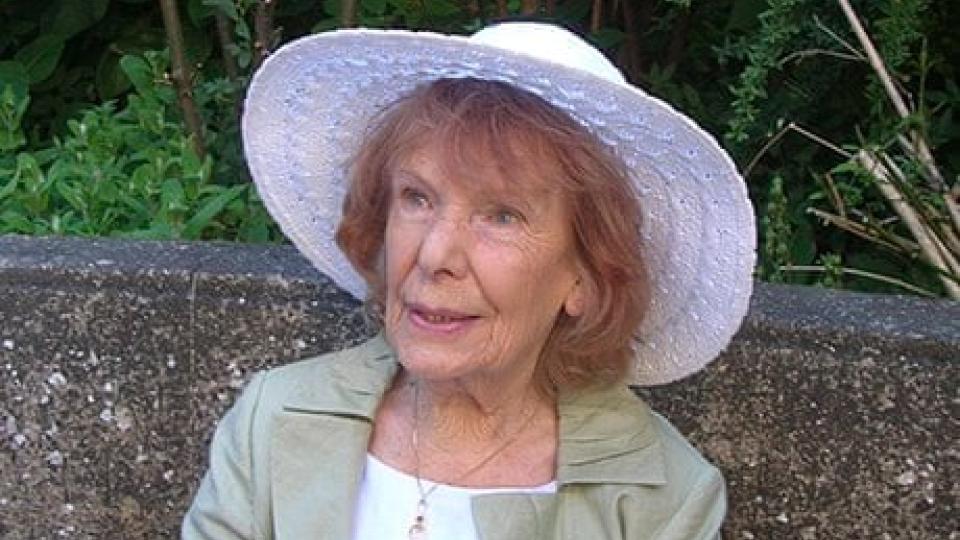
Born Violet Henderson in 1922, Vi lived her childhood in working-class Edinburgh and went on to study English Literature at Edinburgh University. She taught in schools in Aberdeen and Edinburgh, and later became a Tutor and then Senior Tutor in English Literature at Ruskin.
As a young communist in Yugoslavia in 1948, helping to rebuild the Sarajevo railway line, she met John Hughes, the future Principal of Ruskin. They soon married and started a family. Their partnership would flourish at Ruskin, and Vi was known for teaching generations of Ruskin students that politics, social justice and humanity could all be understood and engaged with through literature, poetry and arts. She was a passionate advocate for education for all and to countering the inequalities that left too many unable to express or use their talents fully.
-
Baldwin Spencer
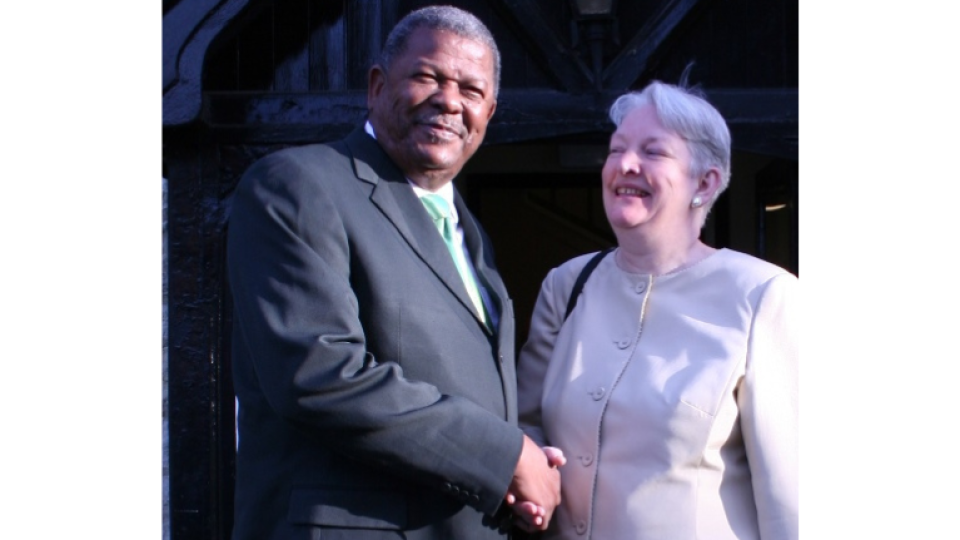
Winston Baldwin Spencer, born in 1948, was the Prime Minister of Antigua and Barbuda from 2004 to 2014. He graduated with a Diploma in Labour and Economic Studies from Ruskin in the early 1970s.
Baldwin became a prominent Labour leader with the Antigua and Barbuda Workers Union and was first elected to Parliament in 1989 as the MP for the St. John’s Rural West constituency.
He would serve as Leader of the Opposition for the United National Democratic Party, where he spearheaded collaborative meetings with the Antigua Caribbean Liberation Movement, resulting in the formation of the United Progressive Party (UPP) in 1992. Baldwin rose to become the leader of the new party and Leader of the Opposition in Parliament.
As opposition leader, he organised public demonstrations and went on a hunger strike to advocate for electoral reform after the widely criticised 1999 elections. Baldwin fought for the formation of an independent Electoral Commission to oversee elections in Antigua and Barbuda. He took the Bird Government to court arguing that, in a democratic society, citizens have a right to hear an opposing political perspective on government airwaves.
He led the UPP to a landslide victory in the March 2004 parliamentary election.
As Prime Minister, Baldwin moved to enact a trio of key government reforms: a nationwide school meals programme, raising the minimum wage and paying all civil servants.
He was also recognised by the United Nations for his leadership, receiving the Millennium Development Goals Achievement Award in recognition for his work advancing the cause of international development.
Ruskin was pleased to welcome Baldwin back for a special visit in 2007.
-
Jim Callaghan
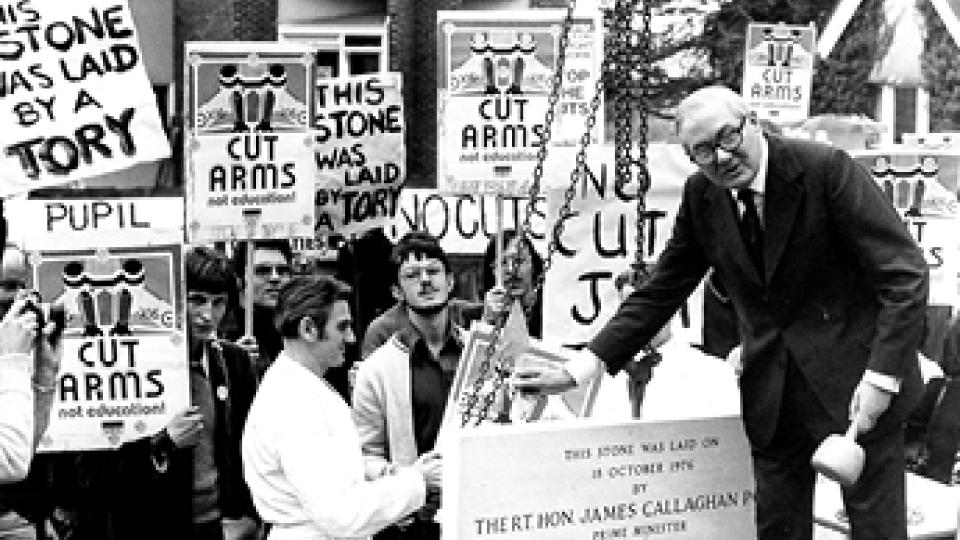
Leonard James ‘Jim’ Callaghan was a British politician who served as Prime Minister of the United Kingdom from 1976 to 1979 and Leader of the Labour Party from 1976 to 1980.
He was born on 27 March 1912 in Portsmouth to Baptist parents James and Charlotte. His father, a chief petty officer in the Royal Navy, died suddenly when Jim was nine. He attended Portsmouth Northern Secondary School and did not go on to university. Jim’s patchy education led to the formation of one of his main political passions: the right to a decent education.
In 1936 he left his first job with the Inland Revenue, where he had become a trade unionist, to become a full-time union official and was increasingly involved with the Labour party. After a stint with the Royal Navy during the war, he returned hoping to make his future in parliament and, in the 1945 Labour landslide, he took Cardiff South from the Conservatives.
On entering the House of Commons in 1945, Jim was on the left wing of the party. Though he did veer towards the centre, he maintained his reputation as “The Keeper of the Cloth Cap”, dedicated to maintaining close ties between the Labour Party and the trade unions.
By 1947 Jim was on the front bench as Parliamentary Secretary for Transport. He would go on to be the only person to have held all four Great Offices of State, serving as Chancellor of the Exchequer (1964–1967), Home Secretary (1967–1970) and Foreign Secretary (1974–1976), prior to his appointment as Prime Minister.
As Prime Minister, Jim had some successes, but also suffered the “Winter of Discontent” of 1978–79, where his battle with trade unions led to major strike action that seriously inconvenienced the public, ultimately leading to his defeat in the polls by Conservative leader Margaret Thatcher.
Jim remained Labour Party leader until November 1980, in order to reform the process by which the party elected its leader, before returning to the backbenches where he remained until he was made a life peer as Baron Callaghan of Cardiff.
Jim visited Ruskin in 1976, where he would give a talk that is widely regarded as having begun ‘The Great Debate’ about the nature and purpose of public education. He also laid the foundation stone of new residential block Biko House, originally named Cyril Plant Building. His grandson Joe studied at Ruskin in 2011.
Jim went on to live longer than any other British Prime Minister in history: 92 years and 364 days. He died on 26 March 2005.
-
Dave Kitson
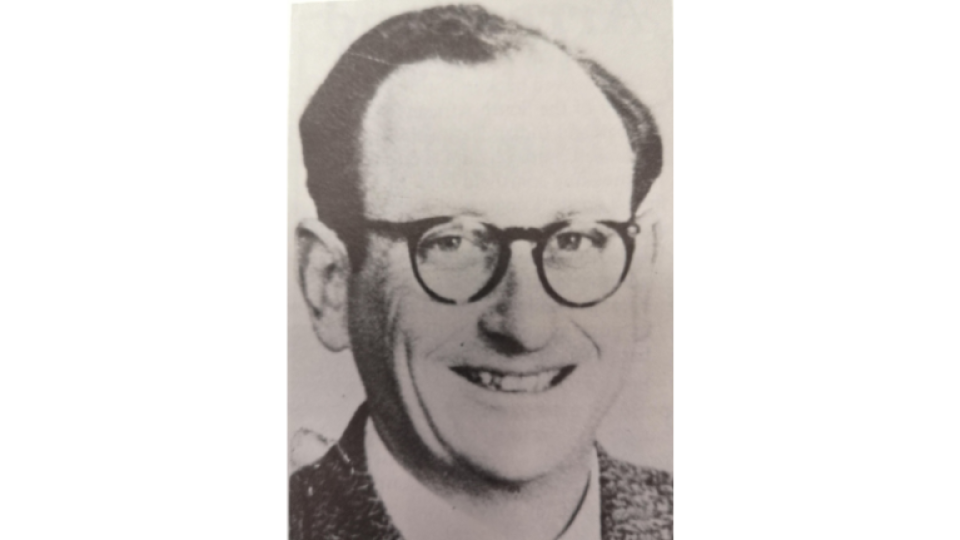
Ian David ‘Dave’ Kitson, born 25 August 1919, was an activist and campaigning member of the African National Congress and South African Communist Party who served almost 20 years in prison for plotting to bring down his country’s apartheid regime.
He studied mechanical engineering at Howard College, Durban, and, graduating in 1942, he served as a sapper with the South African army. After the war he moved to London, his father’s country of birth, where he was active in the engineering union TASS and Secretary of the Communist Party branch in Hornsey. TASS sponsored him for a two year scholarship at Ruskin in 1952.
He went on to marry Norma Cranko, a South African who was also active in the Communist Party, and together they returned to South Africa in 1959.
After Sharpeville, where police fired on unarmed protesters, killing 69, he joined the ANC’s sabotage campaign. When the campaign’s leadership was decimated following mass arrests, David became a member of the high command, directing the revolutionary struggle. 131 days later he was arrested.
Whilst in captivity, David suffered interrogation and his wife Norma was held for three weeks. He was given a 20-year sentence (for sabotage and membership of the Communist Party).
David continued to learn in prison, acquiring further degrees. He was philosophical about his plight as “a casualty of the conflict”. Norma divorced him, moved to Britain, and married fellow South African Sidney Cherfas. Norma would later divorce Sidney and remarry David when he was released.
Norma founded the controversial City of London anti-apartheid group, whose confrontational protests were not approved by the Anti-Apartheid Movement’s national leadership. The ANC and the South African Communist Party told Kitson to denounce his wife, which he refused to do. They were expelled from the Party, suspended from the ANC and his old union, TASS, withdrew the offer of a lectureship at Ruskin. (The then-leaders of the ANC and South African Communist Party who had him expelled were posthumously revealed to have been agents of the South African state.)
Having been ostracised, David and Norma moved to Zimbabwe. At the behest of Walter Sisulu and Nelson Mandela, they would eventually be reinstated by the ANC and honoured as “veterans of the struggle”.
He died on 9 November 2010.
- You can view archive footage from British Pathé of the demonstration for his release at the UK anti-apartheid rally at Trafalgar Square in 1969.
-
Kathleen McColgan
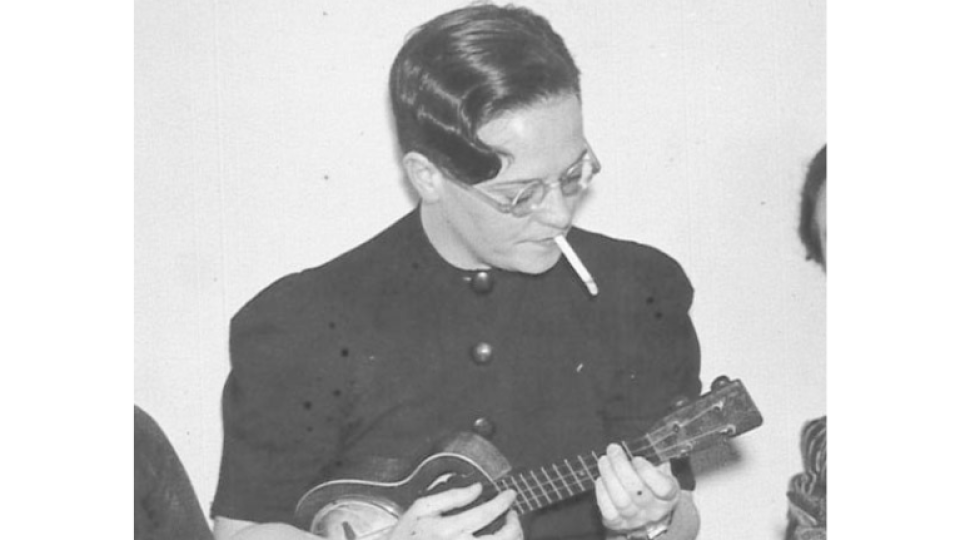
Kathleen McColgan, born in 1914, was a student at Ruskin from 1936. While still at Ruskin, she joined the London University Ambulance Unit. She was previously secretary to the Liberal MP Wilfred Roberts, who, like Kathleen, was involved in the National Joint Committee for Spanish Relief.
In 1937, at the same time as fellow Ruskin student Jim Brewer, Kathleen went to Spain to offer general relief work in the on-going Spanish Civil War against the fascists. She spent time in Almeria, Murcia and Valencia, providing aid and setting up feeding stations for refugees, before returning from Spain in the Spring of 1938.
Following her return she still fought for Spanish aid, making many public speeches at the National Joint Committee for Spanish Relief. She would later go on to work as a journalist for a number of newspapers, notably the London Evening Standard. She passed away in March 1971, at the age of 57.
-
Betty Lockwood
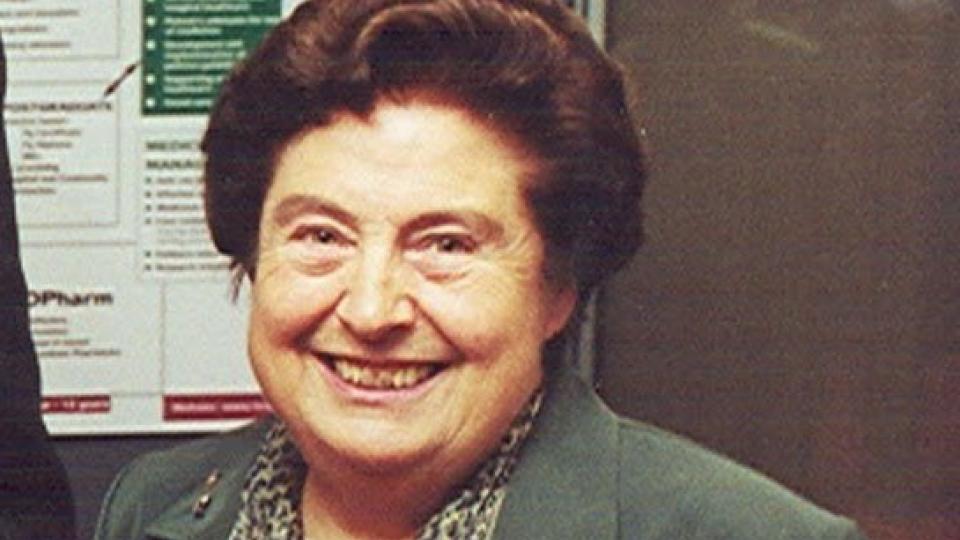
Born in Dewsbury in 1924 into a coal mining family, Betty was a prominent Labour Party and women’s rights activist.
Leaving school at 14, she continued her studies at night school. In 1946, at the age of 22, with the support of a Mary Macarthur scholarship for working women, she read Economics and Politics at Ruskin.
Betty became a member of the Labour Party as regional women’s organiser for Yorkshire, before moving to London as Women’s Officer. She was heavily involved in promoting equal opportunities for women and campaigned for equal pay, being instrumental in the creation of the Equal Pay Act of 1970.
From 1975 to 1983 she served as the first Chair of the Equal Opportunities Commission and, between 1982 and 1983 was also Chair of the European Advisory Committee on Equal Opportunities for Women and Men.
On 27 February 1978 she was made a life peer, Baroness Lockwood of Dewsbury, and sat in the House of Lords until her retirement in 2017.
Baroness Lockwood passed away in April 2019, at the age of 95.
-
Anne Vrooman
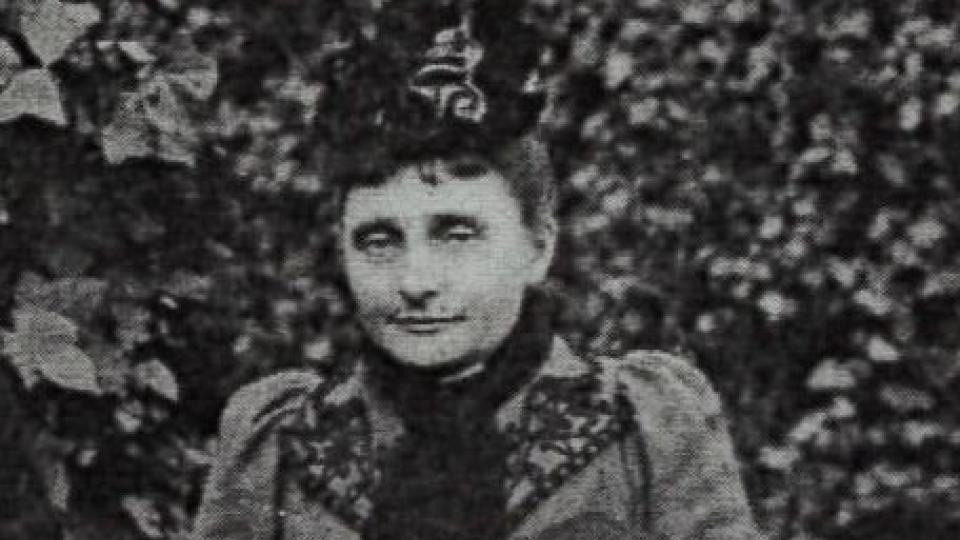
Anne, also known as Amne, was a wealthy American who in 1897 married Walter Vrooman. Two years later Walter co-founded Ruskin Hall with fellow American Charles A. Beard. Much of the funding was provided by Anne.
Though Anne and Walter divorced in 1903, she continued to work at Ruskin in the Correspondence Department. She reverted to her maiden name Grafflin and resided in Park Town, Oxford.
Anne continued to donate to Ruskin, giving £1000 towards the new building in Walton Street in 1902. She also laid one of the foundation stones when the new Walton Street buildings opened in 1913.
In 1915 she took on the key role of Correspondence Department Secretary (without pay) for 18 months, at which point she left Oxford to return to her home country of America.
-
The Rookery
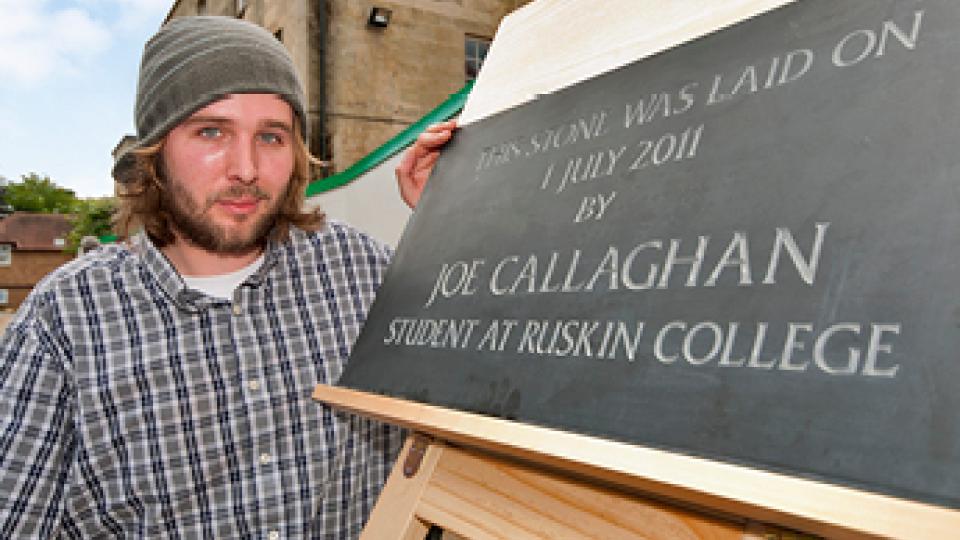
After selling the Walton Street campus to Exeter College, the applications for redevelopment at Ruskin’s Old Headington campus were agreed. The Rookery (a Grade II listed building) would be restored and a new adjoining building added, including teaching rooms, offices, a library and café. The foundation stone was laid in 2011 by Ruskin student, Joe Callaghan (pictured), the grandson of former Labour Prime Minister James Callaghan. After completing the large-scale development, the new headquarters were opened by Gordon Marsden MP on 27th October 2012.
Built in the 1600s, many people would reside in The Rookery over the centuries. It was originally owned by Mr William Finch from approximately 1660 and it would stay in the Finch family for over 200 years, until 1863. The Reverend Taylor bought the house in 1863 and began a preparatory school, which he ran until 1883. The school continued within the house until 1897, run by new owner Dr Walter Sumner Gibson. After he moved to London, The Rookery became a private house again.
The building would then be occupied by Mrs Bartholomew Price, widow of The Reverend Bartholomew Price, Master of Pembroke College, who renamed it Charlton House. Later it would be bought by Dr John Massie, Professor at Spring Hill College, Birmingham, who oversaw extensive improvements, including electric lighting. Following the passing of Dr Massie and, later, his wife, the house passed to Colburn the Builders of Swindon, who bought the house for development purposes. Their proposals were rejected by the council and the house and lands were subsequently sold to Sir Michael Sadler, retired Master of University College. He restored its name to The Rookery.
Sir Michael died in 1943 and his son, Thomas, inherited the building. He sold it to Aubrey Gurden, shortly before it was requisitioned by the War Office. The American Army was based there in nissen huts, and later the house would be used as a convalescence home. Aubrey Gurden leased the Rookery to Ruskin College in 1946 and the college would go on to purchase it in 1947.
-
Walter Vrooman
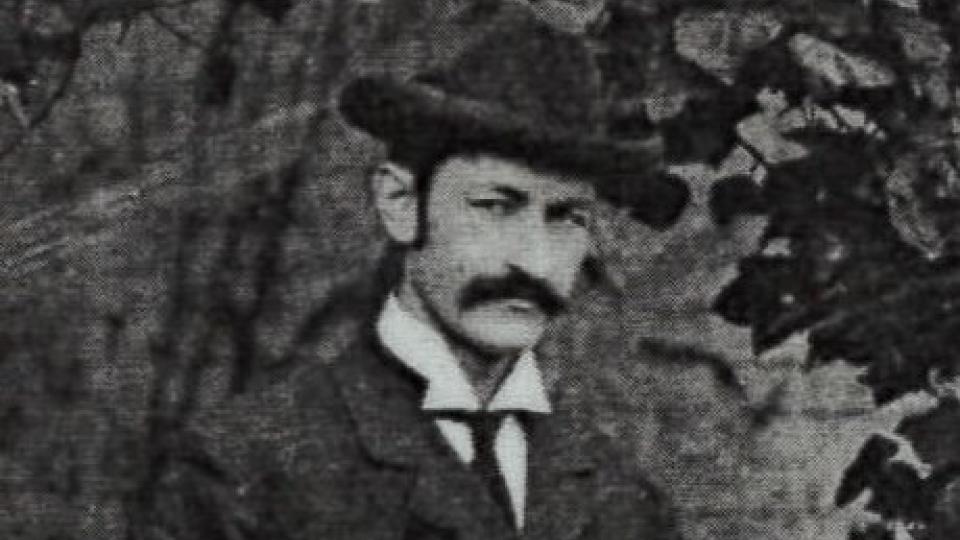
Walter Vrooman was a socialist philanthropist born in Macon, Missouri, in 1869, one of six sons of Judge H. P. Vrooman. A Christian Socialist, he ran away from home at 13 and travelled extensively over the Western States, keeping up with his studies so that he could enter Harvard University in 1888. In 1895 he married Anne L Grafflin, a Baltimore heiress, and they settled in Missouri.
In 1898 they travelled to England, where Walter studied at Oxford University and met fellow student and socialist Charles Beard. Both men held unorthodox views on class and gender politics and decided that they wanted to do something about improving working-class education. In February 1899, Walter and Charles Beard established Ruskin.
Walter would later return to America with a view to opening other colleges in the same mould across the USA.
-
Charles A Beard
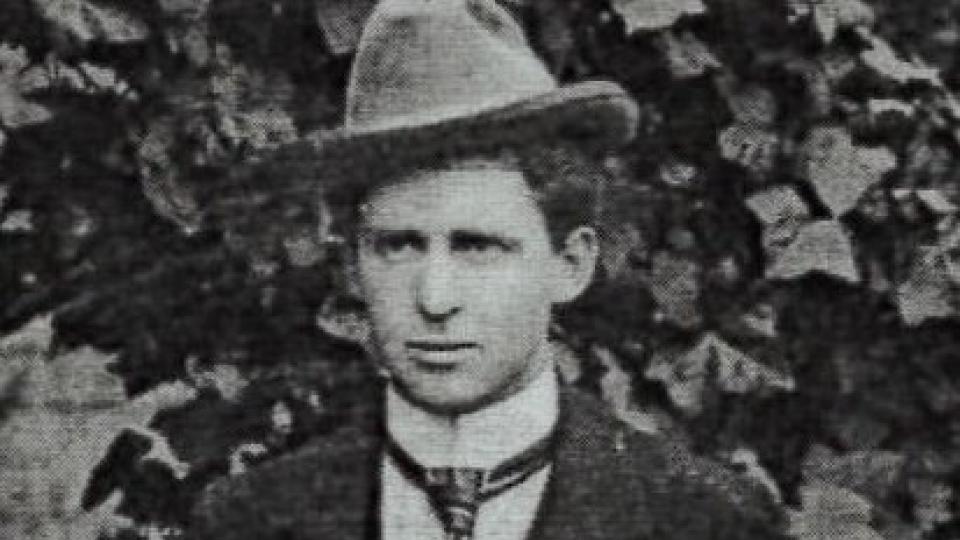
Charles Austin Beard, born in Indiana in 1874 would become one of the most influential American historians of the early 20th Century. In his youth he worked on his family farm and attended a local Quaker school, going on to attend University at a Methodist college.
He came to England in 1899 to study at Oxford University. Here he met and collaborated with Walter Vrooman in founding Ruskin Hall. He also married his classmate Mary Ritter, a historian with an interest in feminism and the labour union movement. Together they would collaborate on many textbooks, including The Rise of American Civilization in 1927.
After co-founding Ruskin Hall in 1899, Charles taught for the first time and lectured workers in industrial towns to promote Ruskin Hall and encourage enrolment in their correspondence courses. Charles persuaded several prominent academics and trade unionists to lend support to the project. Charles was tasked with outlining an educational programme for the college.
He returned to the United States in 1902 to study History at Columbia University. He received his doctorate in 1904, becoming a lecturer at the University, before leaving at the outbreak of the First World War. Later he would be active in the American Political Science Association and was elected its President in 1926. He was also a member of the American Historical Association and served as its president in 1933.
-
Dennis Hird
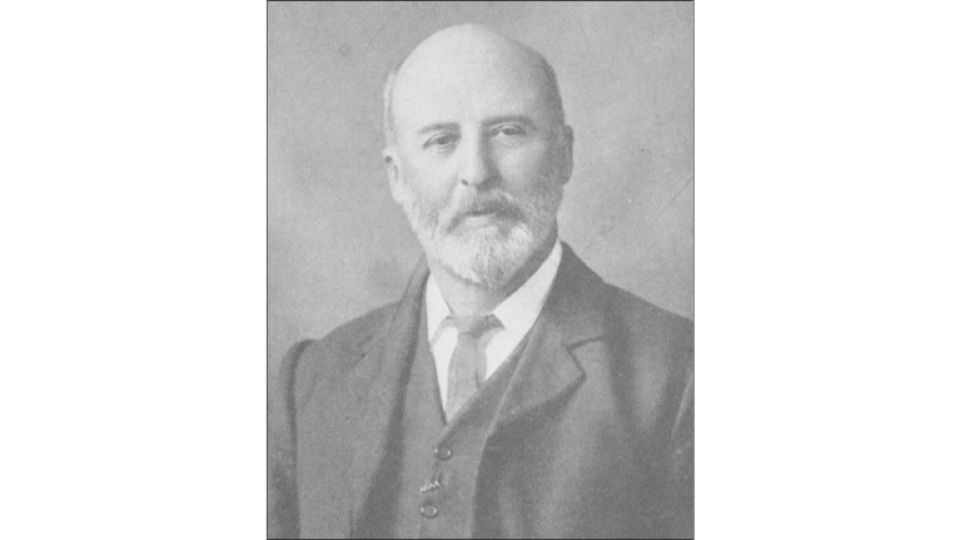
James Dennis Hird, born in 1850 in Ashby, Lincolnshire, was a British clergyman, educator and author. The second of five sons, his parents’ families were well known in Ashby, credited as instigators for Primitive Methodism in Ashby, sparking his socialist tendencies. He would become a member of the Socialist Educational Association. Dennis graduated from Oxford University in 1875. In 1884 he was ordained as a Church of England deacon and a year later a priest. He left the ministry in 1896.
In 1899 Dennis was elected as the first Principal of Ruskin: he was admired as a man of great principle by founder Walter Vrooman. He was also described as “a man of a forcible and attractive personality, known to hold Nationalist and Socialist views of an advanced type”. He taught sociology, evolution and formal logic.
Found to be using the college for propagandist purposes, he was dismissed in 1909. Students went on strike, going on to form the Plebs’ League. Dennis went on to become Warden of the Central Labour College.
-
Mahatma Gandhi
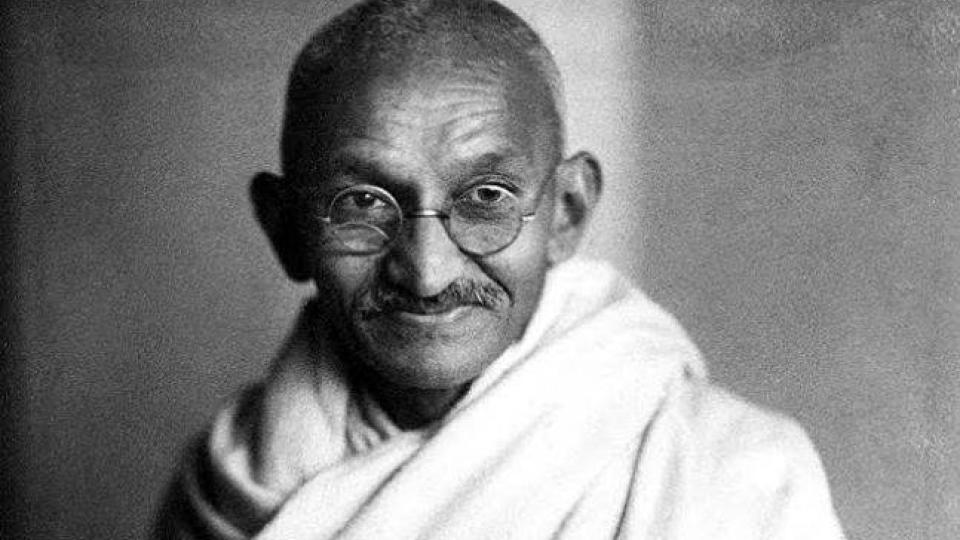
Gandhi, born in Porbandar in 1869, was an Indian activist and leader of the Indian Independence Movement against British rule, inspiring movements for civil rights and liberties across the world. The honorific Mahatma, meaning great soul, was first given to him whilst in South Africa and is now used worldwide. Born and raised in a Hindu merchant castle family in Gujarat, India, he travelled to London in 1888, studying Law at UCL, and in 1893 he set off for South Africa, where he would spend 21 years developing his political and ethical views. Gandhi was a lifelong campaigner for social justice, though some felt he was too accommodating. One of these was Nathuram Godse, a Hindu nationalist, who assassinated Gandhi in 1948. Gandhi is celebrated worldwide on International Day of Nonviolence.
Gandhi visited Ruskin during a brief stay in Oxford in 1931. He came to visit as he was so inspired by the writings of John Ruskin on workers’ education.
-
Jim Brewer
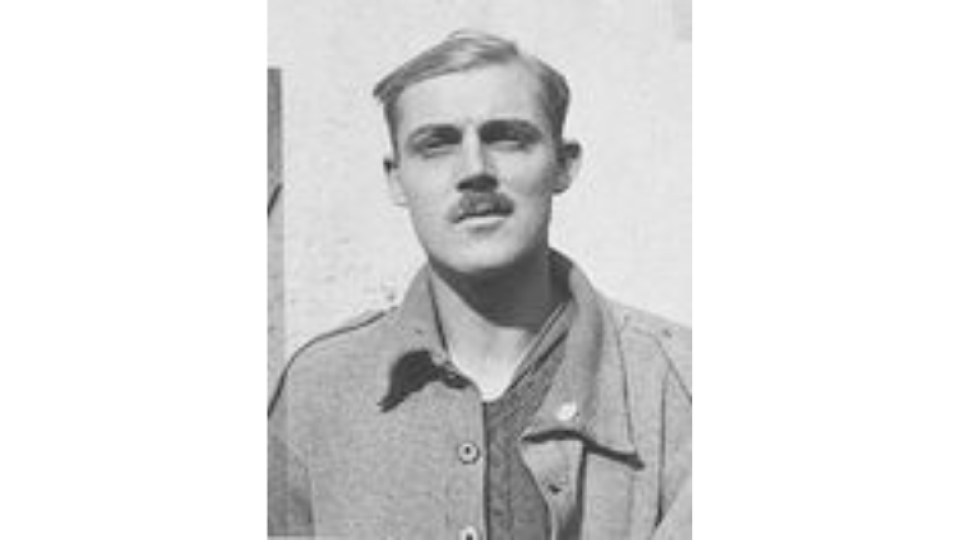
James ‘Jim’ Francis Brewer, born in Rhymney, South Wales in 1913, was a student at Ruskin who would go on to fight against fascist forces in the Spanish Civil War.
Jim’s father was a miner and, at age 14, he left school to join him in the mines and became interested in Trade Unions and the Labour Party. By 1934, he had earned a national scholarship and chose to attend Ruskin College, graduating with a Diploma in Economics and Political Science in 1936.
In solidarity with the Asturian miners and the general Spanish population, who had been brutally suppressed by Franco, Jim travelled to Spain in 1937 (at around the same time as fellow Ruskin student Kathleen McColgan) and served in the Anti-Tank Battery as a member of the Machine Gun Company. He quickly increased in rank, becoming a Quartermaster, and fought in pivotal battles across Spain including in Brunete, Teruel and Ebro.
He withdrew from Spain in late 1938, having received an award for his service from the Spanish Republican Government in exile. Following the war, Jim continued his political activism, holding positions such as Constituency Chairman, Senior Councillor, and Secretary of the Trade Council until his death in 1993.
Jim was interviewed at length in 1987 for the Imperial War Museum’s archives.
-
Jack Ashley
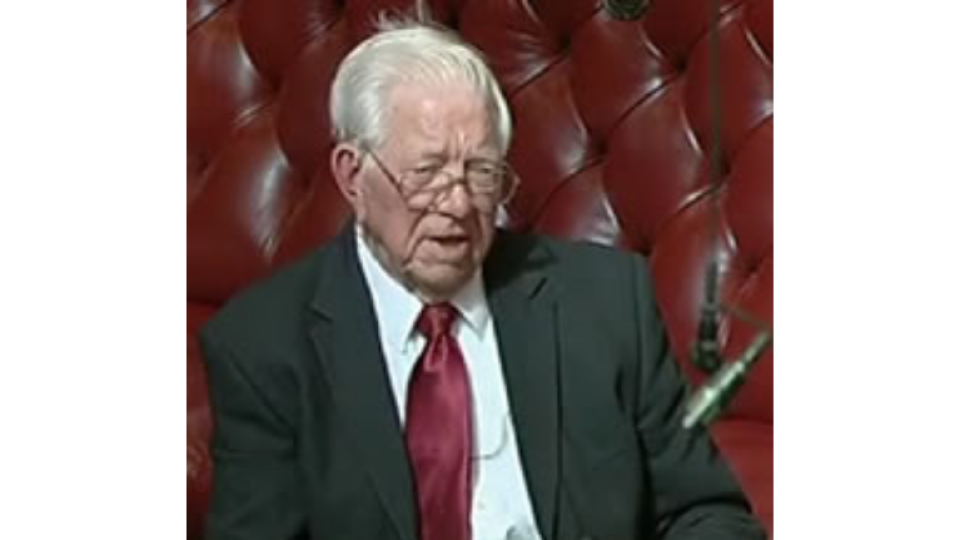
Jack Ashley, later Baron Ashley of Stoke, was a British politician. He was Labour MP for Stoke-on-Trent South for 26 years and subsequently sat in the House of Lords. He was a long-time campaigner for disabled people.
Born in Widnes and educated in Warrington, Jack became a crane driver and was a shop steward in the Chemical Workers’ Union. He was the youngest executive member aged 22.
Jack won a scholarship to Ruskin, where he achieved a Diploma in Economics and Political Science in 1948, and continued his studies at Cambridge, where he was President of the Cambridge Union Society.
He went on to work for the National Union of General and Municipal Workers and served on Widnes Borough Council as a councillor from 1946. Jack married Pauline Kay Crispin in 1951 and they had three daughters. Television presenter Andrew Marr is his son-in-law.
He was elected as MP for Stoke-on-Trent South at the 1966 general election and became a life peer in 1992.
Jack became profoundly deaf and was a tireless campaigner for the disabled, especially the deaf and blind.
-
Judy Fryd
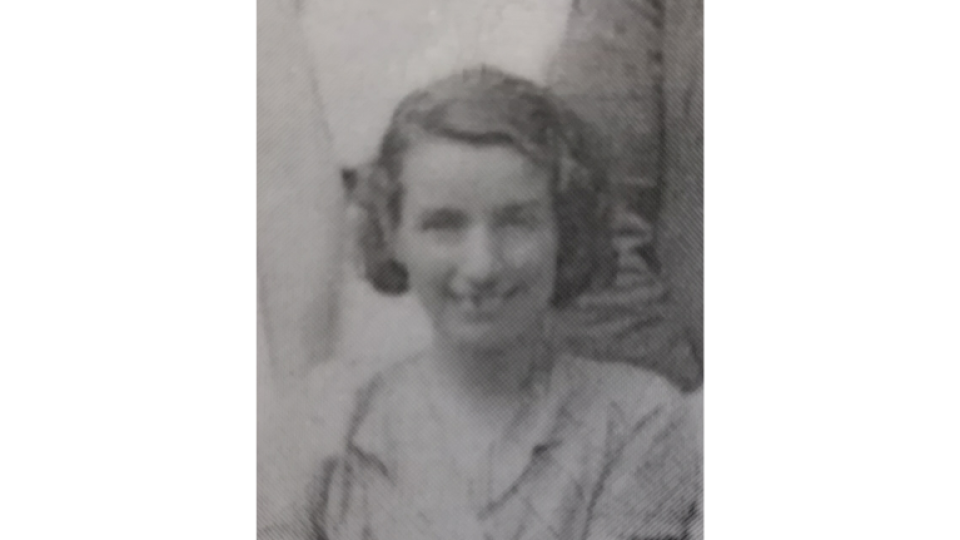
Born in Hornsey, London in 1909, Judy (nee Caroline Joyce Manning) became a pioneering campaigner for children with learning disabilities and founder of The National Association of Parents of Backward Children, now known as Mencap. She was also the long-time editor of Parents’ Voice, a magazine that rallied for positive action and help for the parents of learning-disabled children.
Judy studied Economics and Political Science at Ruskin, where she met John Fryd. They were active members of the Labour Party throughout their lives. Married in 1936, they had four children: Felicity, Patricia, Peter and Linda. Felicity, their eldest, had a learning disability; they sought help but were unsuccessful, meeting constant obstacles.
After only half a day at a mainstream primary school Felicity was rejected for being too disruptive. At another school she was deemed “not suitable” and her immediate removal was requested. Felicity was returned to her family who were left to cope alone with her autism and challenging behaviour (then described as juvenile schizophrenia). The lack of understanding from society and the professionals who were supposed to support her angered Judy. This would become the driving force behind her ground-breaking work.
Her initial step, in 1946, was to respond to a letter in Nursery World magazine which asked if there were other parents struggling to cope with a learning-disabled child at home. Judy suggested that she and other parents of such children should band together in an effort to receive some kind of recognition of and support for their plight. Within a month more than 1,000 parents, largely mothers, had joined forces.
Although modest in private, Judy became a dynamic campaigner for children and adults with learning disabilities and altered the public’s perception of learning disability. She sowed the seeds of Mencap, now the largest disability organisation in the country, and led a campaign which resulted in the 1971 Education (Handicapped Children) Act, overturning the previous thinking that children with a learning disability were ineducable.
Judy was appointed MBE in 1967 and CBE in 1996. She died at the age of 90 in 2000.
-
Henry Sanderson Furniss
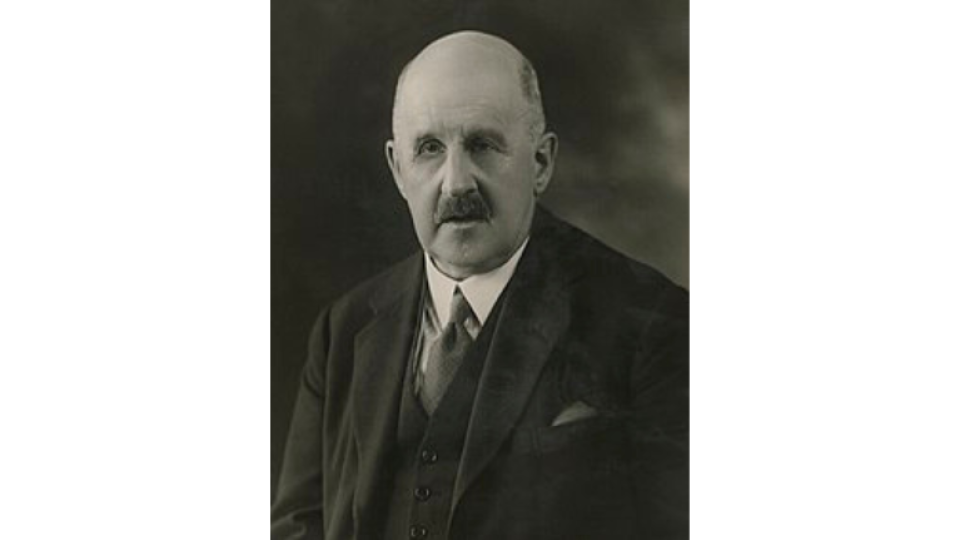
Henry Sanderson Furniss, born in London in 1868, was an English educationalist and socialist politician.
Blind from birth, he was privately tutored, and entered Hertford College, Oxford to read Modern History.
In 1902 he married Averil Dorothy Nicholl and he and his wife were both active members of the Labour Party.
Henry was a lecturer at Ruskin from 1907 and became the college’s third Principal from in 1916 to 1925, during which time Ruskin accepted its first female students. His wife, Lady Averil Sanderson, would open a hostel for female students at Ruskin in 1950.
Henry became Baron Sanderson in 1930 in recognition of his distinguished career in education. He was an active member of the Lords and represented the Labour peers on the parliamentary executive of the Labour Party.
-
Hilda Kean
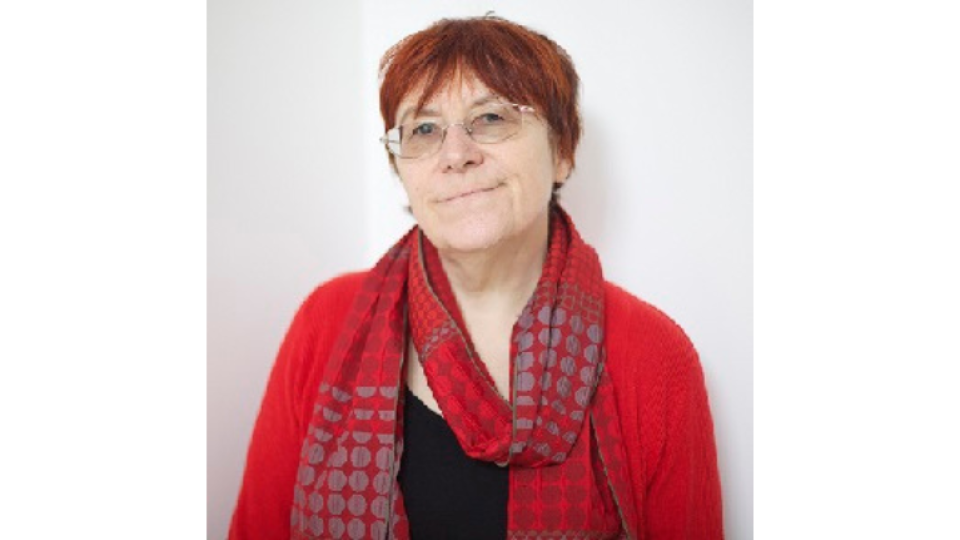
Hilda is a British public and cultural historian, specialising in the cultural history of animals, and has written a number of books, including Animal Rights: Political and Social Change in Britain since 1800, published in 1998. She is a former school teacher, advisor and local government senior manager and nowadays conducts guided walks, gives lectures, runs courses and leads a growing public history discussion group.
Hilda was for many years the Dean and Director of Public History at Ruskin and remains an Honorary Research Fellow. With Geoff Andrews and Jane Thompson, she wrote a book called Ruskin College: Contesting Knowledge, Dissenting Politics, which includes essays on public history, the work of Raphael Samuel and debates in the early years of the college. Hilda has also written articles discussing her experience of teaching public history at Ruskin.
-
Tom Mboya
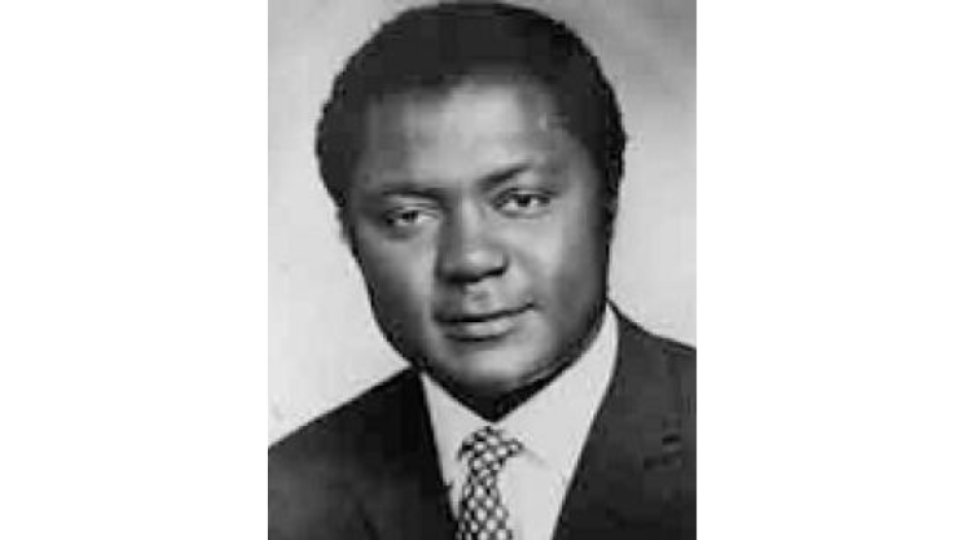
Thomas Joseph Odhiambo ‘Tom’ Mboya was a Kenyan trade unionist, educationalist, activist, and cabinet minister who was one of the founding fathers of the Republic of Kenya. He spearheaded the negotiations for Kenyan independence and was instrumental in the formation of Kenya’s independence party, the Kenya African National Union (KANU), which he served as Secretary-General.
Born in 1930 in Nairobi, Tom would go on to train as a sanitary inspector at the Kenya Medical Department, where he was elected president of the student council. Tom devoted his energies to union work, helping to found the Kenya Local Government Workers Union. He gradually moved into politics, joining the Kenya Africa Union as Acting Treasurer, and would become the General Secretary of the Kenya Federation of Labour. Tom helped secure a 33 percent pay rise for dock workers in 1955.
In 1955 Tom attended Ruskin to study Industrial Management and, on returning to Kenya, he went into politics and was elected to the Legislative Council in 1957. In 1958, at the age of just 28, Tom was elected Conference Chairman at the All-African Peoples’ Conference. He helped build the Trade Union Movement across Africa, and served as the Africa Representative to the International Confederation of Free Trade Unions (ICFTU). In 1959, he formed the first All-Africa ICFTU labour organisation.
Mboya worked with John F. Kennedy and Martin Luther King Jr. to create educational opportunities for African students. This enabled East African students to study at American colleges and notable beneficiaries of this cultural shift included Nobel Peace Prize winner Wangari Maathai and Barack Obama Sr., the father of Barack Obama. Tome became the first Kenyan to appear on the front page cover of Time magazine.
Tom was instrumental in the talks with the UK and colonial government to negotiate Kenya’s independence in 1964. In the Independent Republic of Kenya, he was appointed as Cabinet Minister for Justice and Constitutional Affairs. He created Kenya’s social security scheme and established a court to hear labour-management cases. Tom was later appointed Minister of Economic Planning and Development. In this role, he wrote a key paper on the Principles of African Socialism, which would be adopted by Parliament in 1964 and provided a model of government based on African values.
Tom was one of the most prominent personalities in Kenyan history, with an illustrious career as a brilliant and charismatic leader and a hugely influential force in the development of modern-day Africa. He was considered a genuine contender for the presidency of Kenya, before he was assassinated on the streets of Nairobi in July 1969.
-
June Rose Nala
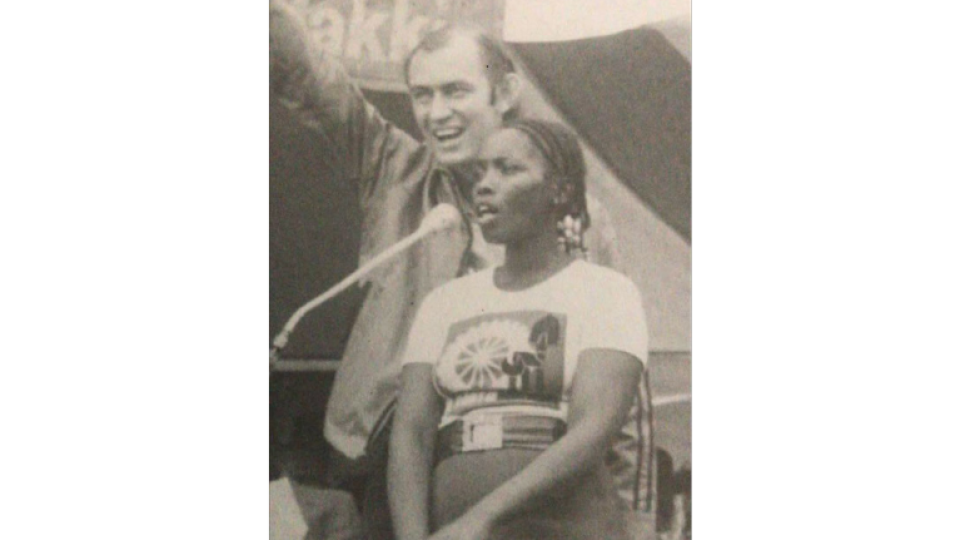
June was born in Durban, Natal and was a Labour Activist, trade unionist and lecturer who studied at Ruskin in the 1980s. She was a leading member of the anti-apartheid movement in South Africa.
June first became active in the Natal Trade Union movement after working at the Frame Group Textile Plant as a weaver. Through her Trade Union activism she became involved in organising the Durban Workers’ Strikes between January and March 1973. In September 1973, June was elected to the executive of National Union of Textile Workers (NUTW).
In 1975 June was elected secretary of the Natal Benefit Fund and in March of the following year she was charged with instigating strikes at the Natal Cotton and Woollen Mills. She was arrested and detained, alongside Obed Zuma who was also part of NUTW. Following her release she became the first black woman to be elected to the position of General Secretary of the Metal and Allied Workers Union (MAWU).
Between the years 1989 and 1993, June was a Lecturer of Sociology at the University of Natal, continuing to work closely with the Trade Union Movement and helping to establish the Workers’ College.
-
Nomvuyo (Vuyo) Ngwaxaxa
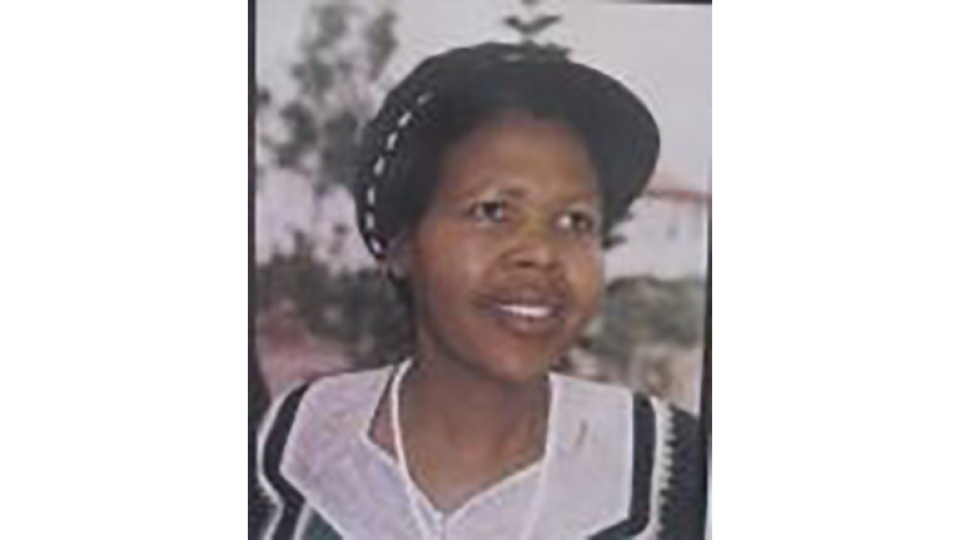
Nomvuyo (Vuyo) Ngwaxaxa was the Education Officer for South Africa’s leading trade union confederation COSATU.
She completed the MA in Women’s Studies at Ruskin and created a significant educational and activist legacy in the South African labour movement before her untimely death in 2008.
Vuyo’s passion was to increase the number of women trade unionists in South Africa engaged in trade union education and to mainstream gender equality initiatives throughout the work of the South African labour movement.
Ruskin was given a significant financial donation to create a scholarship in Vuyo’s name and to maintain her legacy. The scholarship enabled two women from the labour movements of the global south (one of whom must be from South Africa) to join Ruskin as full-time students.
-
John Prescott
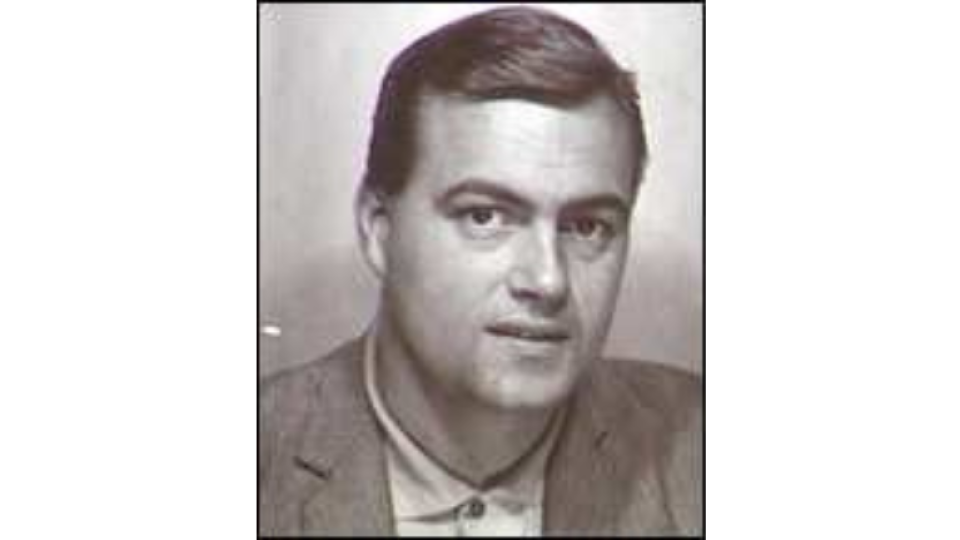
John Leslie Prescott is a British politician and trade union activist. He was born in Prestatyn, Wales, though he lived his formative years in Brinsworth in the West Riding of Yorkshire and Upton in Cheshire. John was a steward and waiter in the Merchant Navy, working for Cunard and went on to marry Pauline ‘Tilly’ Tilston in 1961. He was appointed Deputy Prime Minster after Labour’s victory in the 1997 election, acting as Secretary of State for the Environment, Transport and the Regions. John resigned as Deputy Prime Minister coinciding with Tony Blair’s resignation as Prime Minister in 2007 and later retired from his forty year stint as MP for Hull East at the 2010 election.
John attended Ruskin College in 1965, where he gained a diploma in Economics and Politics.
-
Dennis Skinner
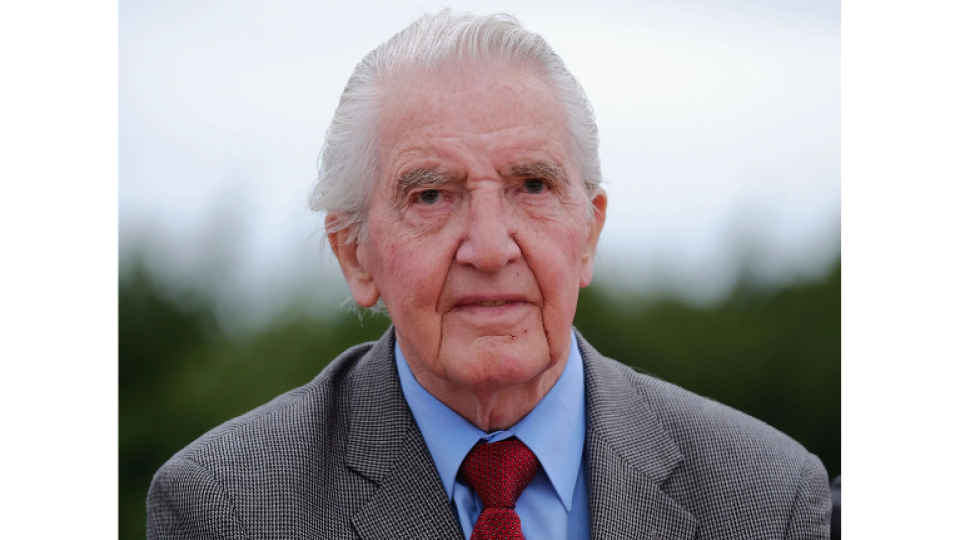
Dennis Skinner hails from Clay Cross, Derbyshire, and was the longest continuously-serving Labour Party MP, as MP for Bolsover from 1970 – 2019.
He is the third of nine children; his father was a coal miner and his mother a cleaner. At the age of ten Dennis won a scholarship to attend Tupton Hall Grammar School after passing the eleven-plus a year early and later went on to become a miner. In 1964, aged 32 and following 20 years of coal mining, he became the youngest-ever president of the Derbyshire National Union of Mineworkers.
Dennis served as a member of Labour’s National Executive Committee for thirty years and is a member of the Socialist Campaign Group of Labour MPs.
Dennis attended Ruskin College in 1967 after completing a preparatory course run by the National Union of Mineworkers at the University of Sheffield.
-
Bertram Wilson
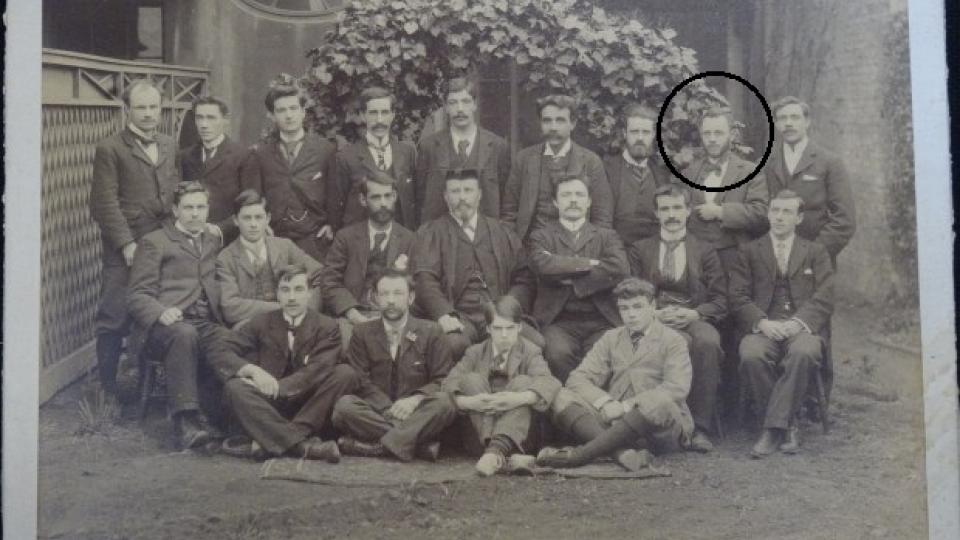
Bertram was among the first set of students at Ruskin and was the first student to have later gained a place on the college faculty. He studied for a Diploma in Economics and Political Science and would most likely have joined the college on a Trade Union scholarship.
Previously Bertram had been Secretary of the Hanley Labour Church, working as a cashier in the potteries, and was responsible for a pioneering exposé of the effects of lead poisoning. He joined the college as a ‘working’ student in the caretaking post of sub-warden and was later promoted to the faculty in May 1900, with mainly administrative responsibilities, but did some lecturing.
In 1902 he became the General Secretary of Ruskin. He became one of the main protagonists in the bitter internal dispute of 1908-9 and in 1910 left the college to become the manager of the new Birmingham Labour Exchange.

